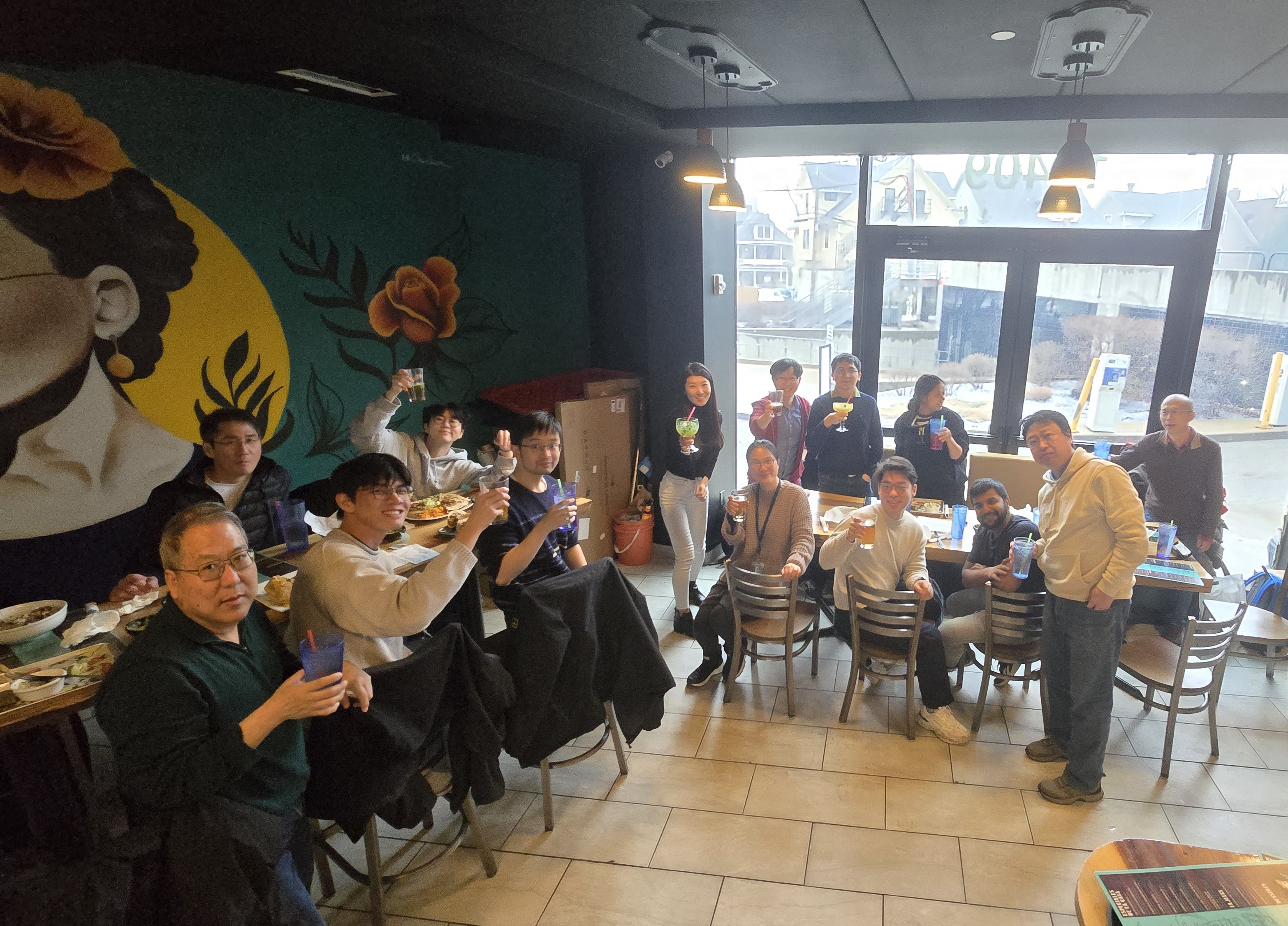
Welcome Jin & Tak
Posted 3/10/25
We kicked off our first happy hour of the year today to welcome our new lab members!
A warm welcome to Jin and Tak-we're excited to have you on board. Looking forward to another year of great science together!
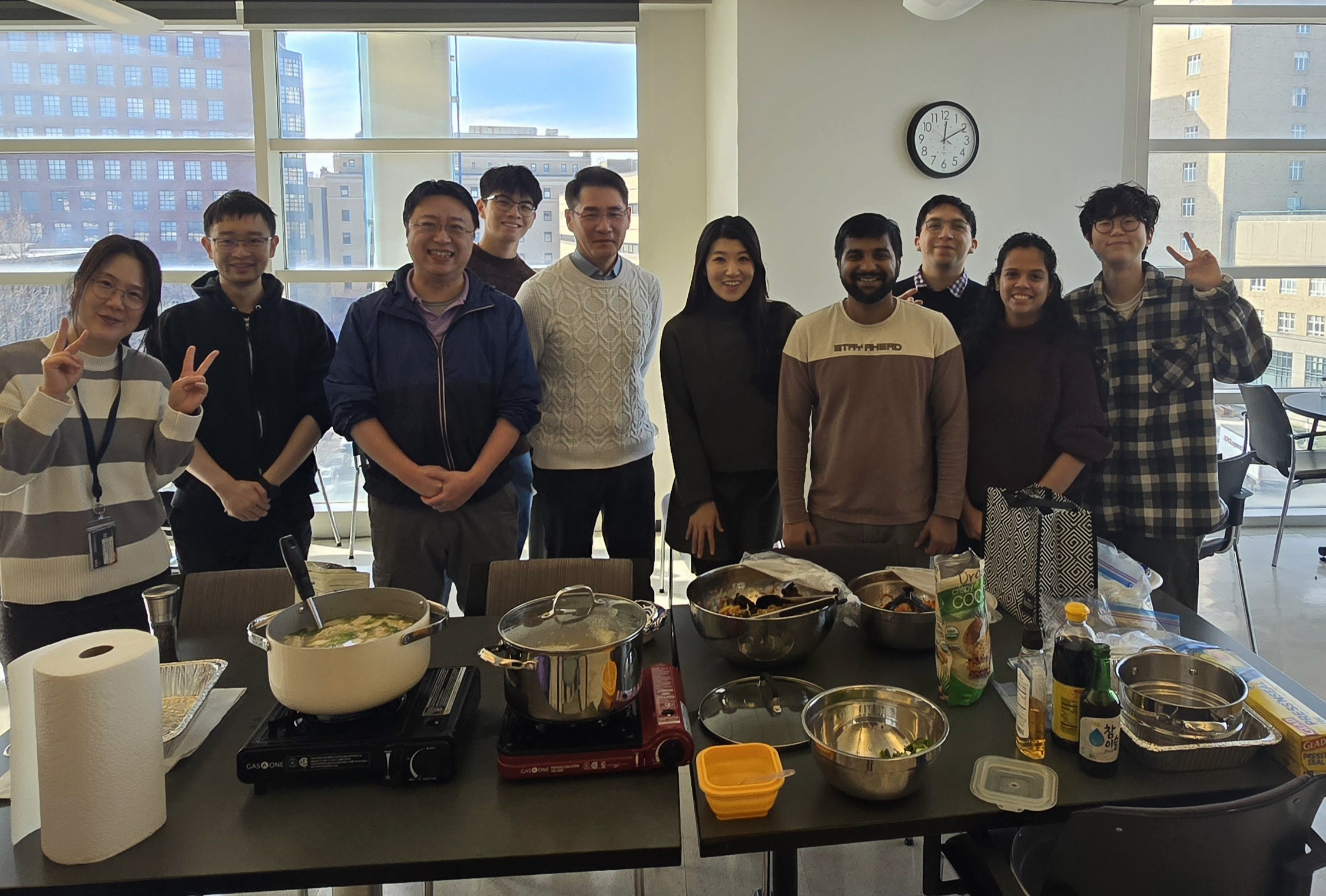
Happy Lunar New Year from the Kang-Woo Lab!
Posted 1/30/25
To celebrate the Lunar New Year, Alexa prepared a delicious Korean feast for the lab, including Tteokguk (rice cake soup), Japchae (stir-fried glass noodles), and other traditional dishes. Wishing everyone a joyful and prosperous Year of the Snake!
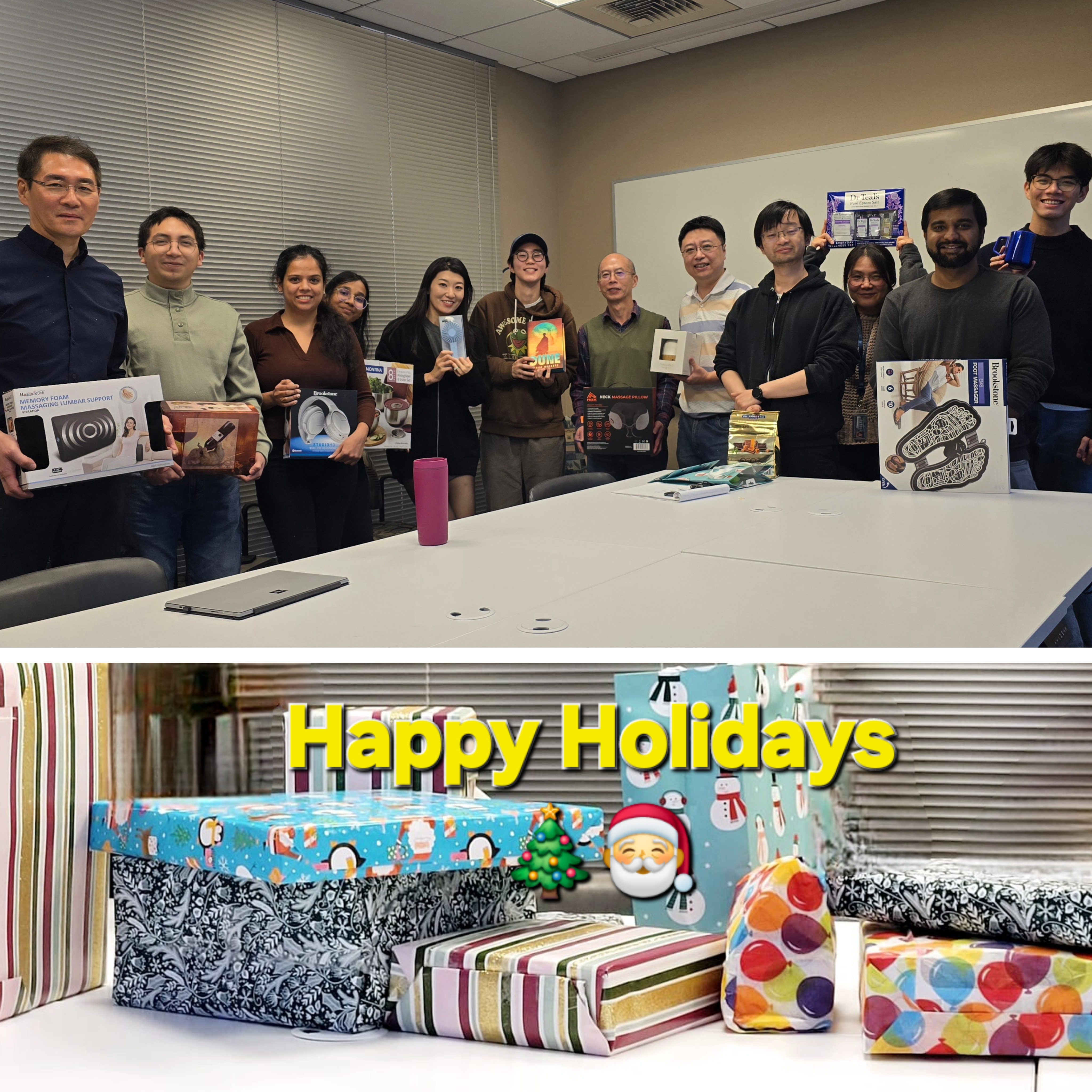
Holiday Season Greetings from Our Lab!
Posted 12/9/24
The holiday season is here again, and as always, we celebrated with a fun and exciting White Elephant gift exchange! It was such a joy to share gifts, laughter, and even a little playful "stealing." We wish you all a wonderful holiday season filled with happiness and warmth. Happy Holidays from all of us!
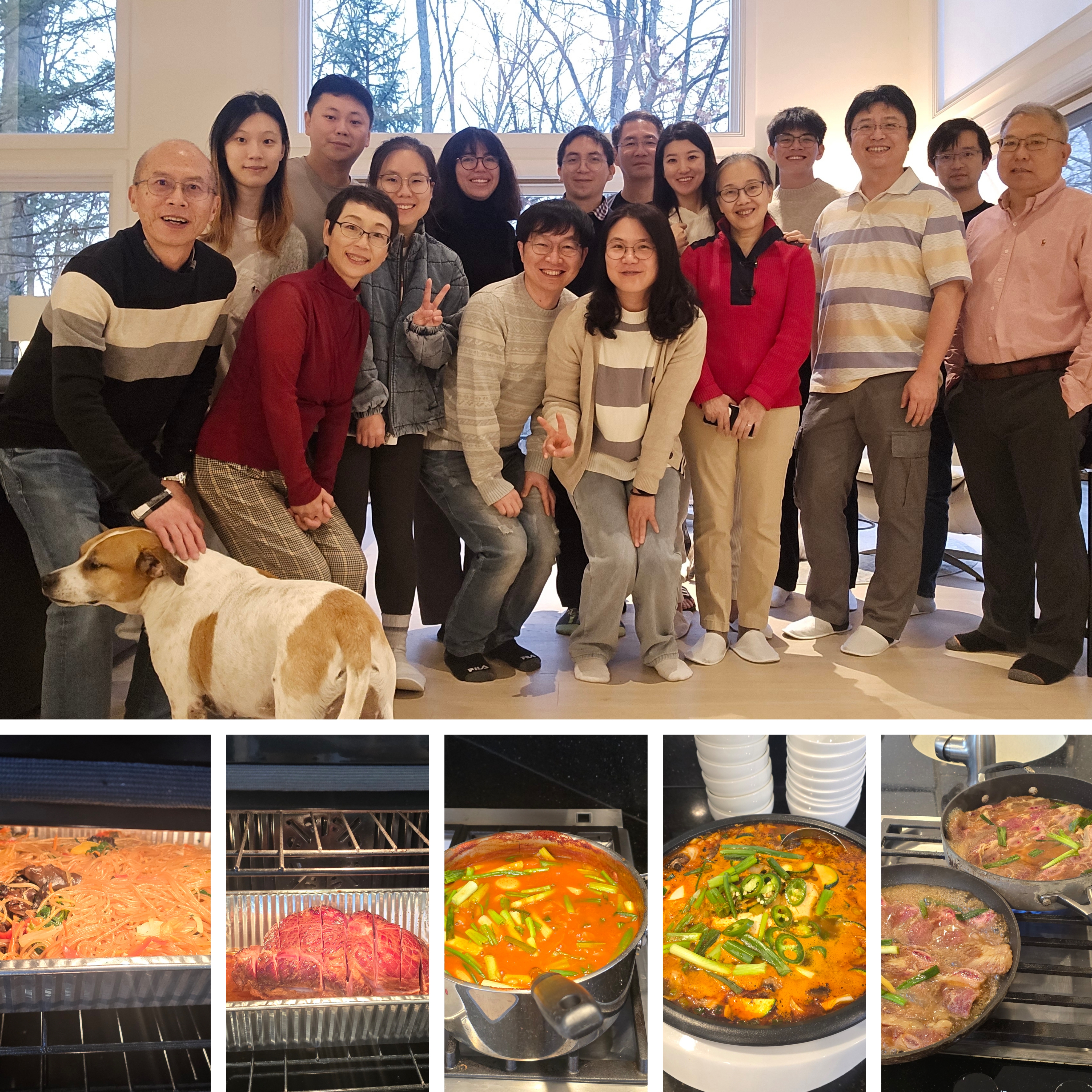
Happy Thanksgiving from the Kang-Woo Lab!
Posted 12/5/24
As the year draws to a close, we gathered with lab members and their families to celebrate Thanksgiving. This gathering provided an opportunity to reflect on the year and express our gratitude for one another's dedication and hard work. We are thankful for the amazing team we have and look forward to another year filled with joy, collaboration, and success. Wishing everyone a warm and happy Thanksgiving!
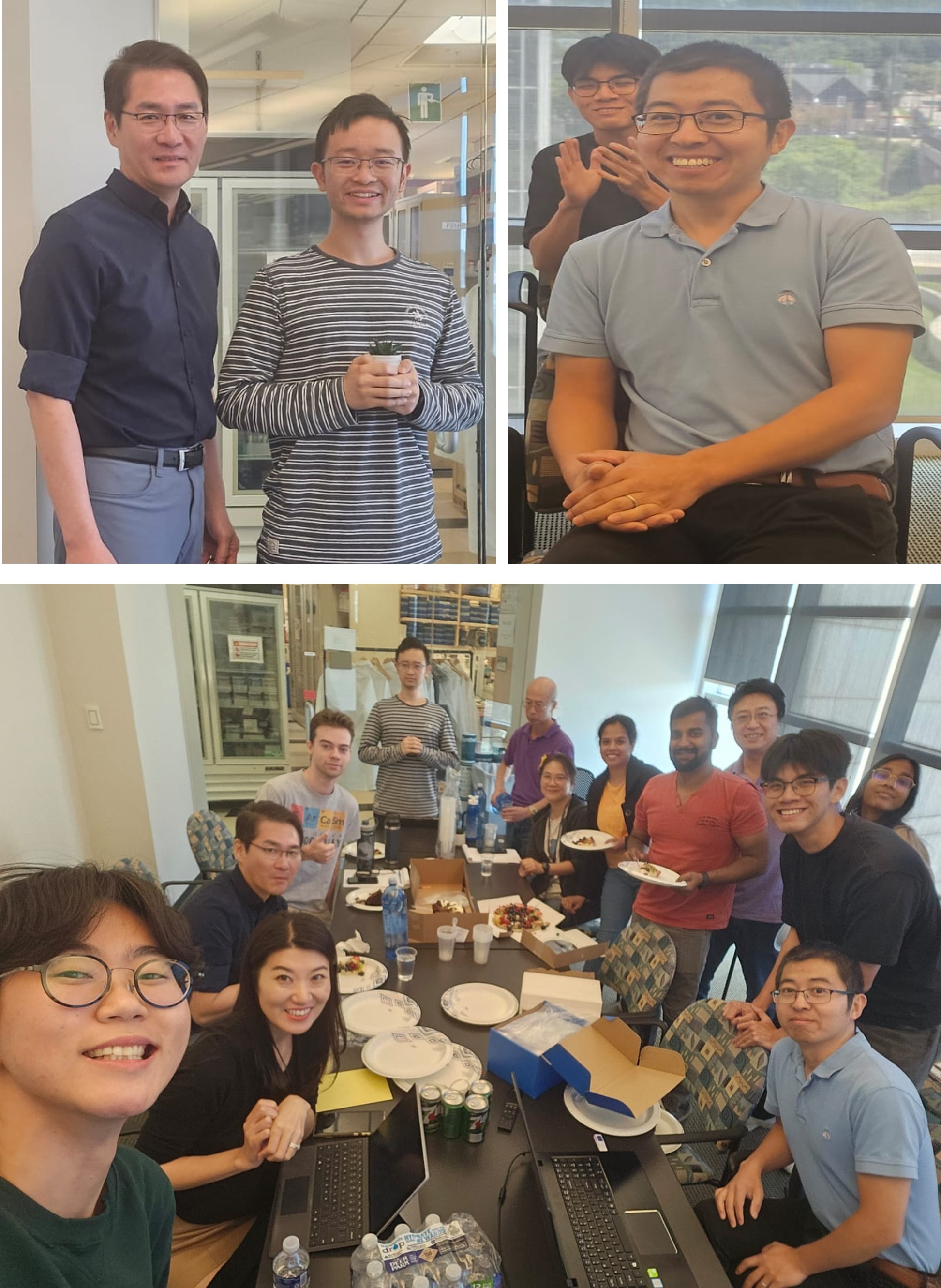
Lab Celebrations and Achievements
Posted 8/21/24
We are delighted to celebrate Alexa's birthday this week! The fruit tart and chocolate cake were enjoyed by all. Happy Birthday, Alexa! We are also thrilled to announce that our PhD student, Ma, has successfully passed his qualifying exam and is now officially a PhD candidate. As a light-hearted gift, Ma received a cactus—congratulations, Ma, on this significant milestone! Finally, we are proud to share that Dr. Liu has officially received his first R01 and R03 grants. Congratulations, Dr. Liu, on this outstanding achievement!
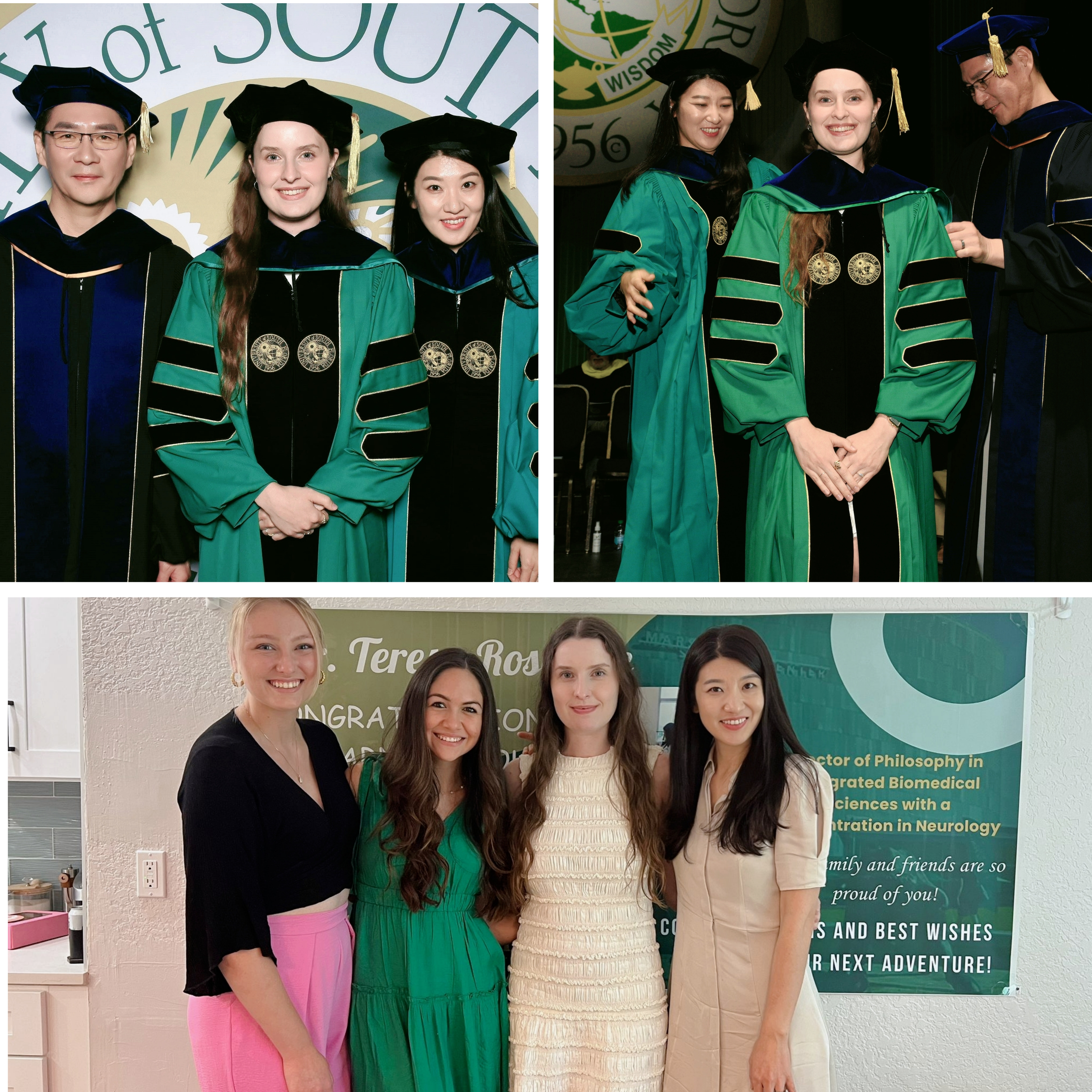
Dr. Teresa Kee's Doctoral Commencement
Posted 8/7/24
We are thrilled to announce the successful doctoral commencement of Dr. Teresa Kee. Drs. Kang and Woo traveled to attend Teresa's hooding ceremony and doctoral commencement. Teresa joined our lab as an undergraduate researcher and worked as a technician for a year before becoming a PhD student in our lab. Over the past 5 years, she has made significant contributions to our research, publishing 12 papers, including 3 as the first author. This year, she is also submitting another first-author paper. We are incredibly proud of Teresa's outstanding achievements. At her commencement party, it was heartwarming to reunite with Jess and Pam, who had worked with Teresa as undergraduates in our lab, after three years. Seeing them build their careers as great scientists is a source of great pride and joy! Once again, congratulations to Dr. Kee on her doctoral degree!
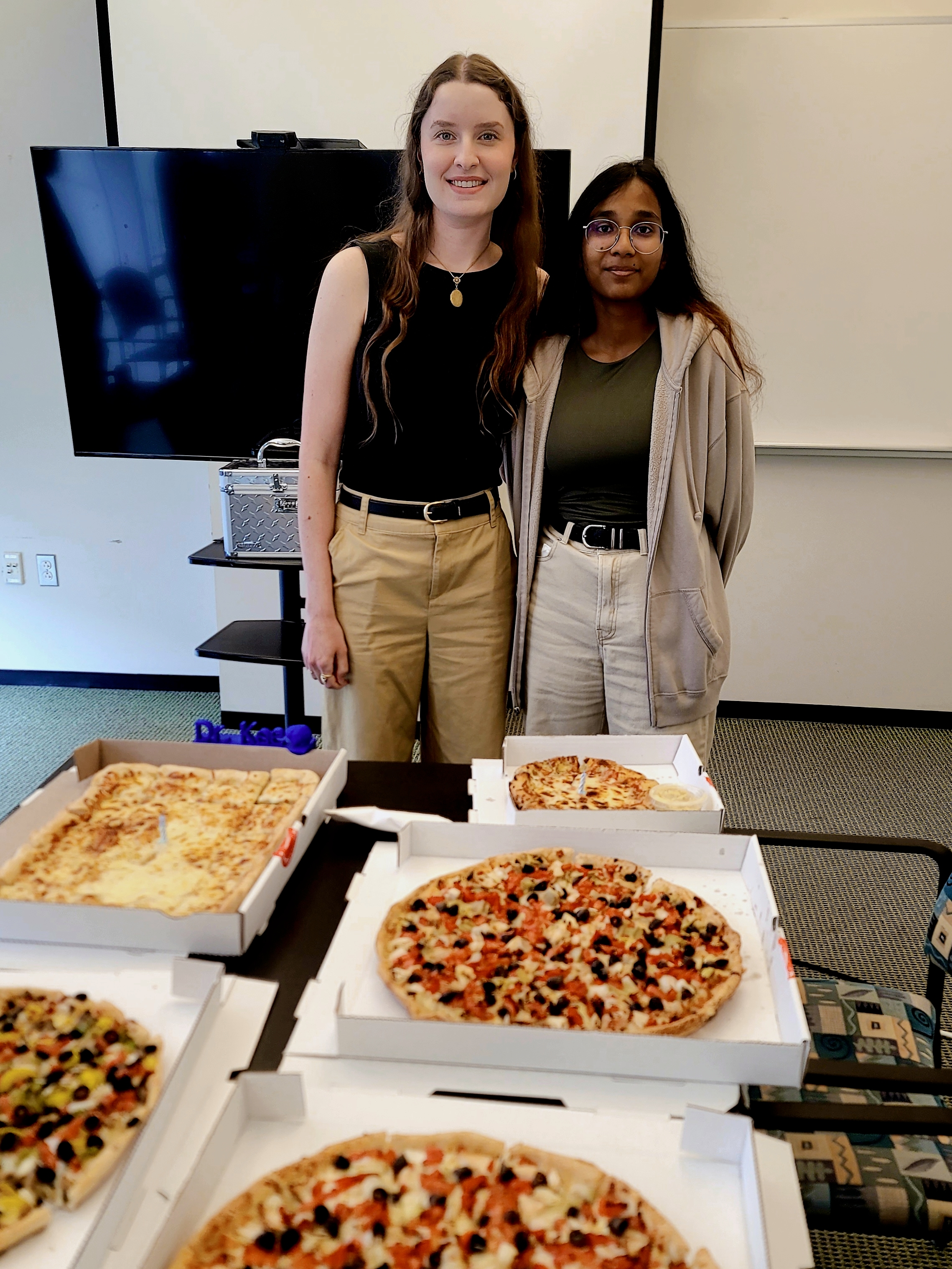
Teresa and Nandita, Happy birthday!
Posted 7/25/24
It's been so special to have people in our lab sharing birthdays from May to July lol This is Teresa’s last birthday with us as a PhD student! After graduating, she plans to take a refreshing vacation for several months before returning. We will miss her, but we hope she enjoys a well-deserved and recharging vacation, and we look forward to seeing her happy and healthy back in the lab next year! Nandita, keep up the great work! Congrats to both of you from our lab.
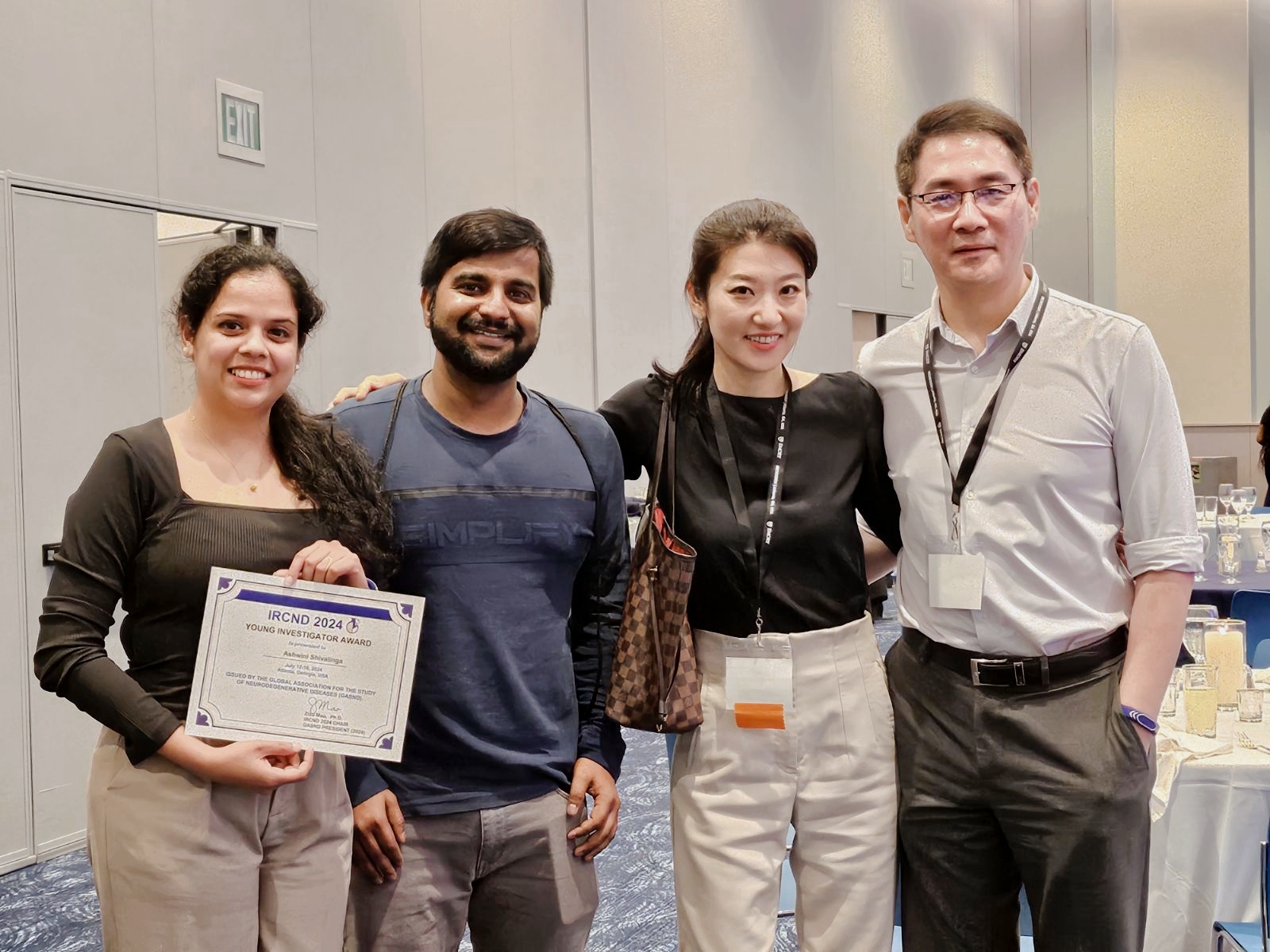
Kang-Woo Lab attended the 4th IRCND at Emory University
Posted 7/18/24
Dr. Kang served on the program committee, and Dr. Woo took on the role of Junior Investigator Development Chair at IRCND this year! A big congratulations to Ashwini, who won the poster award for her outstanding presentation! Ashwini and Pramod both did an excellent job representing our lab. It was great to catch up with old friends and make new connections during the conference. We’re proud of our team’s accomplishments and look forward to more successes ahead!
Dr. Alexa Woo Promoted to Associate Professor with Tenure
Posted 6/28/24
Our lab is happy to announce that Dr. Alexa Woo has been promoted to Associate Professor with tenure, effective July 1st, 2024! Alexa attributes her achievements to our outstanding lab members, her former mentors, and the alumni who have graduated from our lab and are now excelling in the health field. Congratulations! The lab is so happy for you!
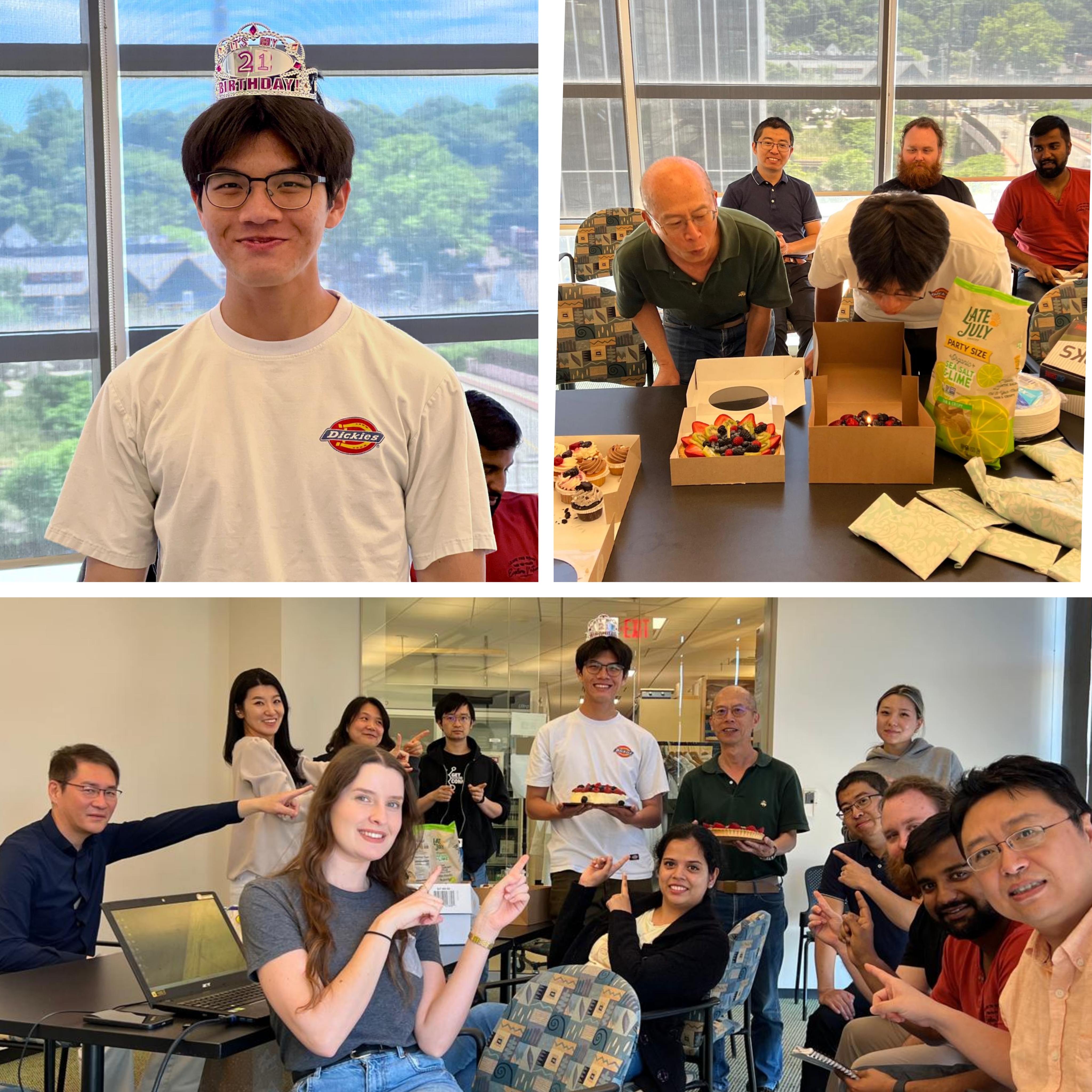
Happy Birthday, Hua & Khoi!
Posted 6/28/24
Our lab manager, Hua, and undergrad student, Khoi, share the same birthday! So, we had a joint birthday party! The Kang-Woo lab is thrilled to celebrate your special day together and wishes you the best for this year. May this year be filled with only good things!
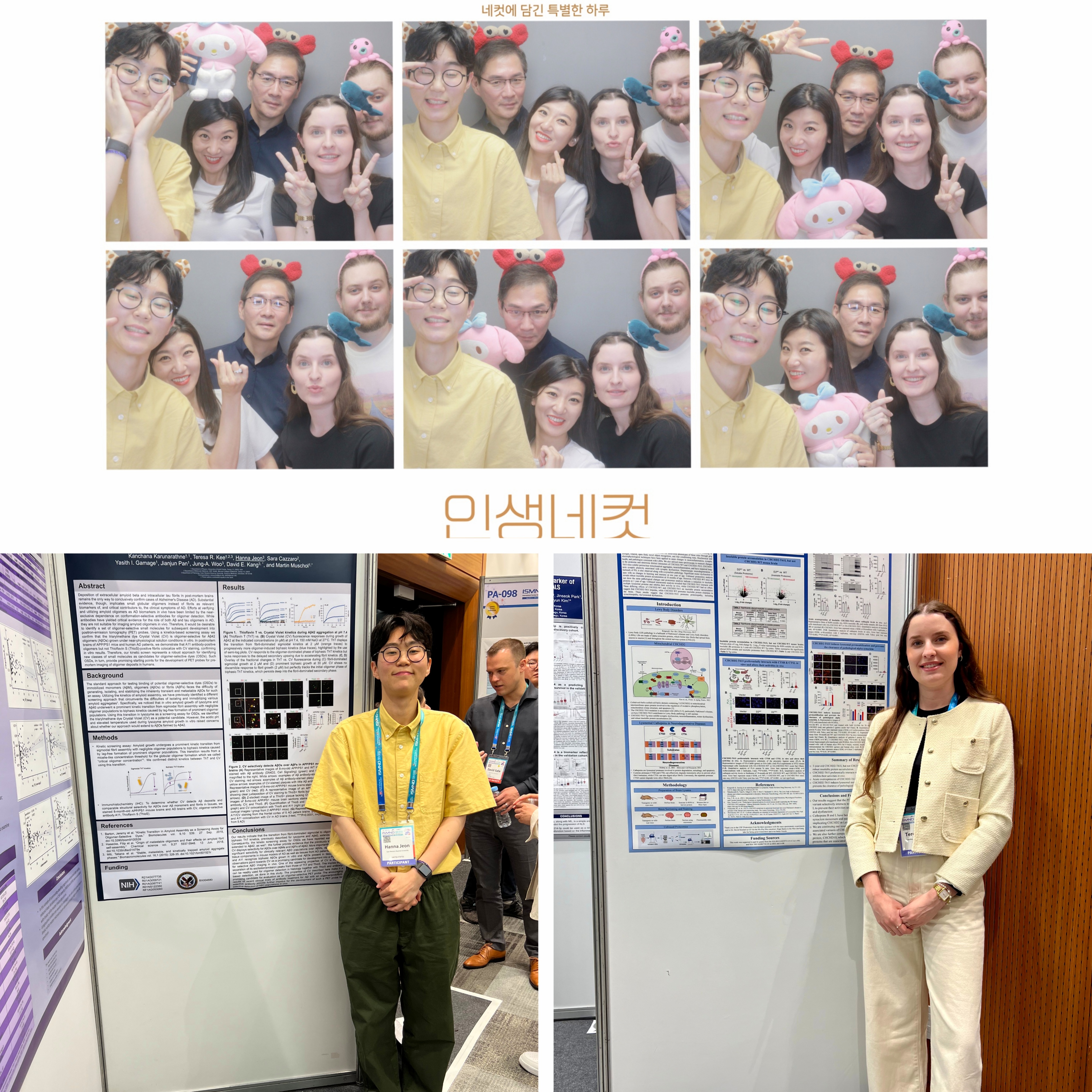
Kang-Woo Lab Attends ISNMD 2024 in South Korea
Posted 6/17/24
The Kang-Woo lab attended the ISNMD 2024 conference in Seoul, South Korea. Both Teresa and Hanna had the opportunity to present their posters and their presentations were well-received! It was a memorable and enriching experience for us!
CWRU THINK Magazine Features Dr. Woo and Dr. Kang for Our Exciting Work!
Posted 5/16/24
CWRU THINK Magazine Features Dr. Woo and Dr. Kang for Our Exciting Work! Please check it out: "Unraveling a Gender Disparity: New Research to Understand Why Alzheimer's Disease Is More Common in Women." https://case.edu/think/spring2024/unraveling-a-gender-disparity.html
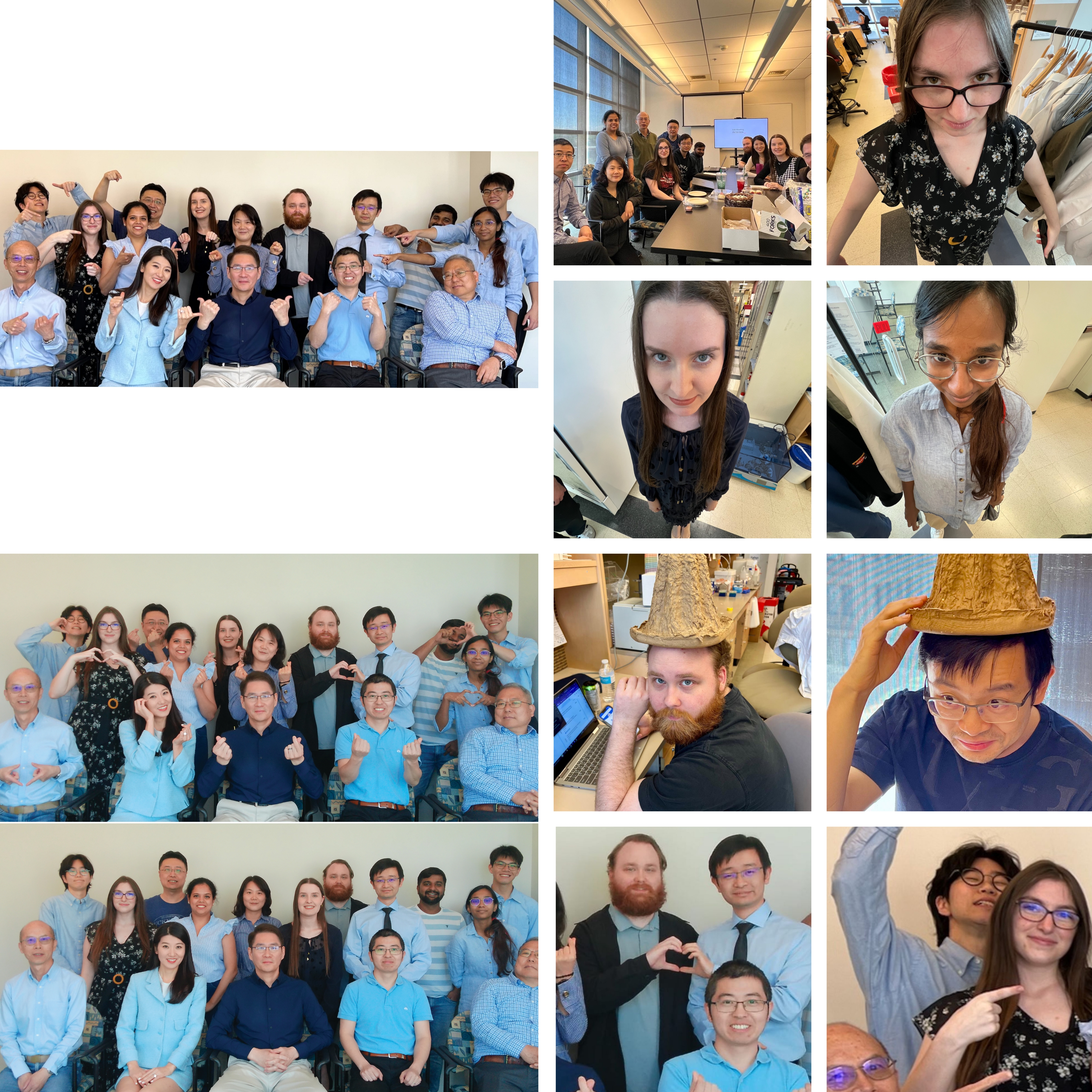
Fun Lab Photo day!
Posted 5/16/24
Since it's been ages since our last lab group photo, we declared it "Fun Photo Day!" We snapped loads of hilarious shots—although a few gems are just too precious to share publicly, LOL. Here are some of the pics that we're brave enough to let out into the wild. Enjoy! ;)
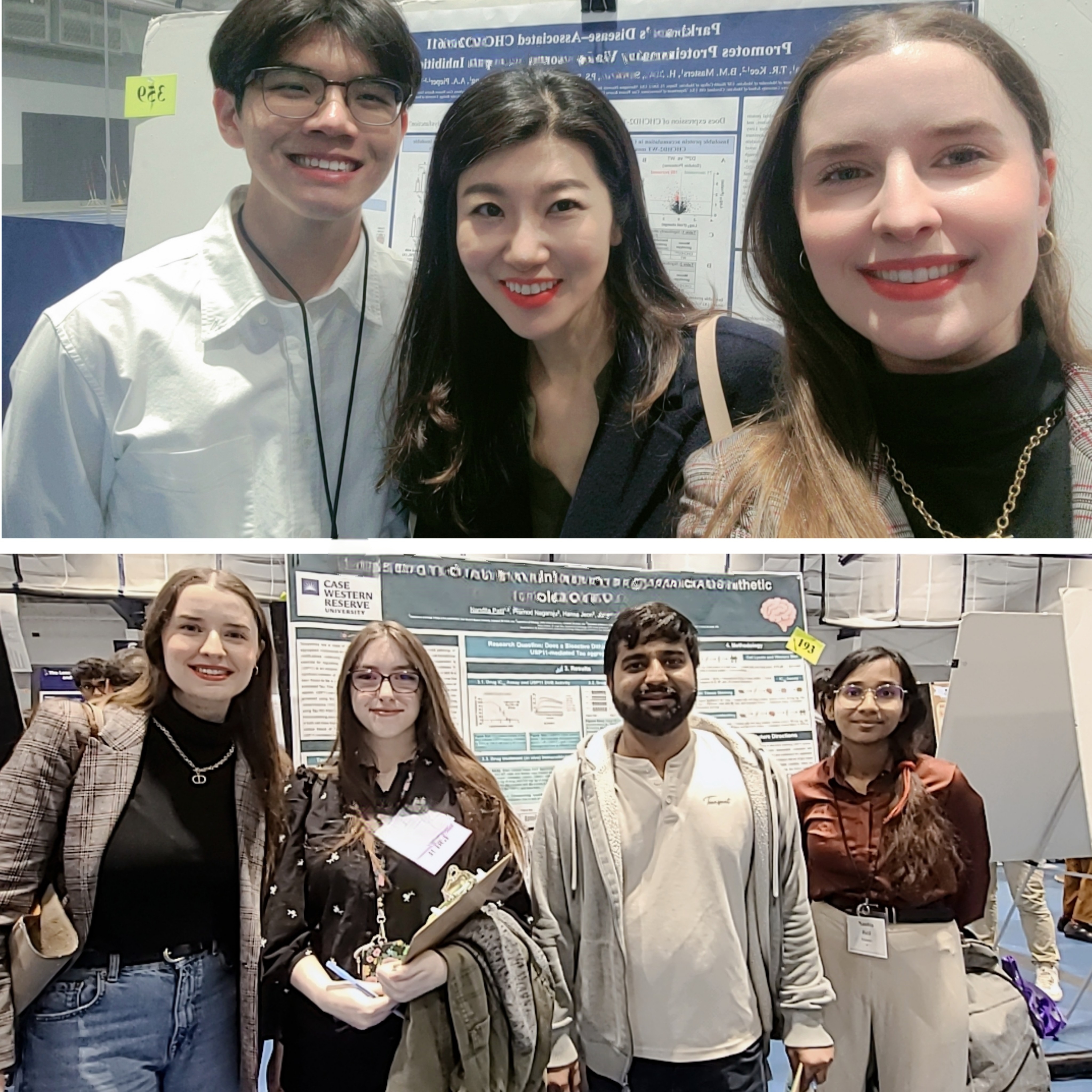
Khoi and Nandita Showcase Poster Presentations at CWRU Intersections Event
Posted 5/1/24
Two of our undergraduates, Khoi Tran and Nandita Patil, showcased their research at the largest ever Intersections event, held on April 19 at the Veale Convocation, Recreation, and Athletic Center at CWRU! We hope they had a blast! Our graduate student, Brianna, and postdoc, Pramod, also participated as judges for the event! Great job, all!
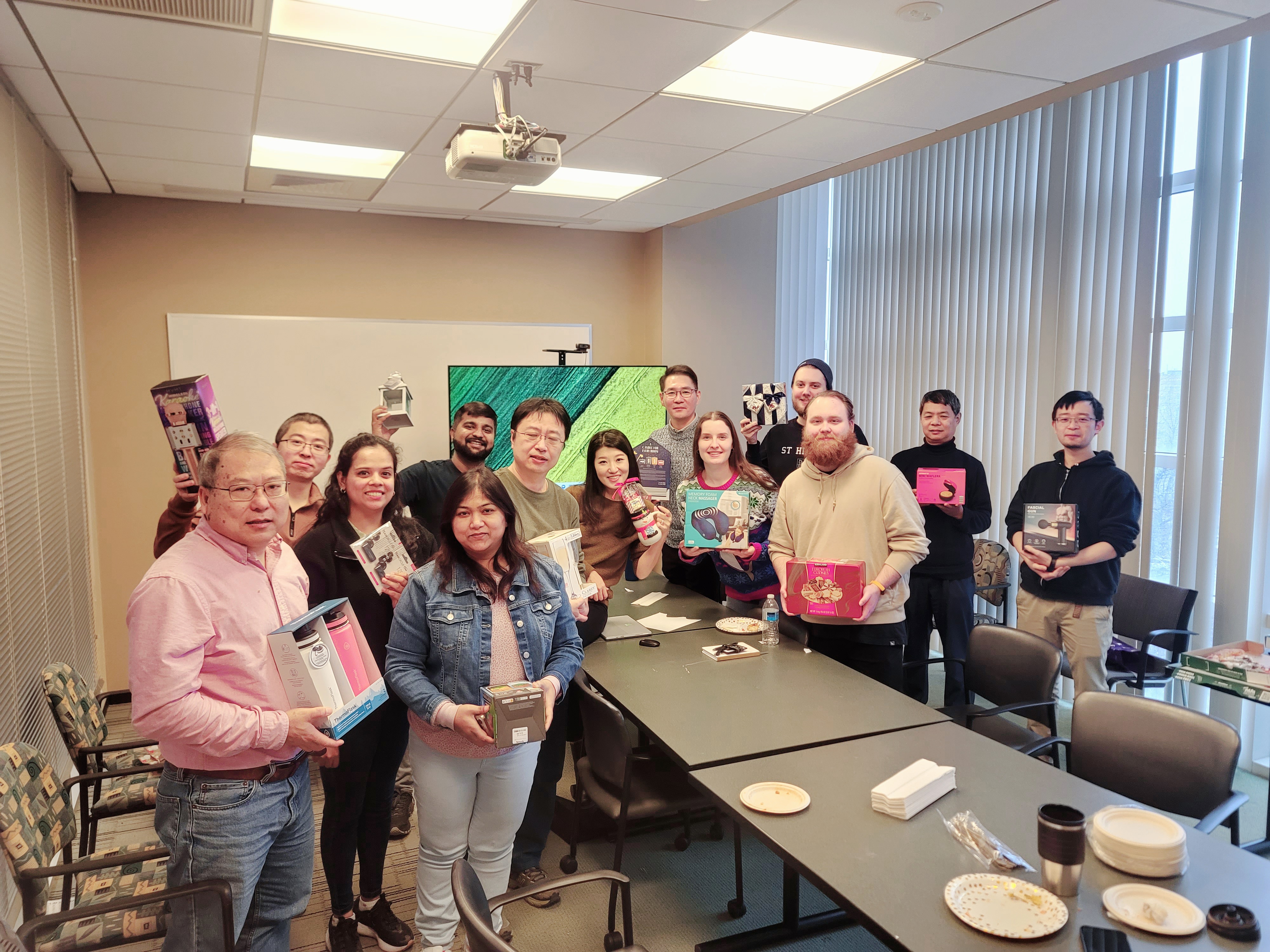
Happy Holidays from Kang-Woo Lab!
Posted 12/22/23
This year has been remarkable, thanks to the hard work of our dedicated team! We had fun with our white elephant exchange and pizza party. We deeply appreciate every lab member's contribution to our success. As we look forward to the new year, we're excited about the opportunities it brings. Wishing everyone a joyful holiday season and a prosperous, successful new year. Here's to an even more fantastic year ahead at Kang-Woo Lab!
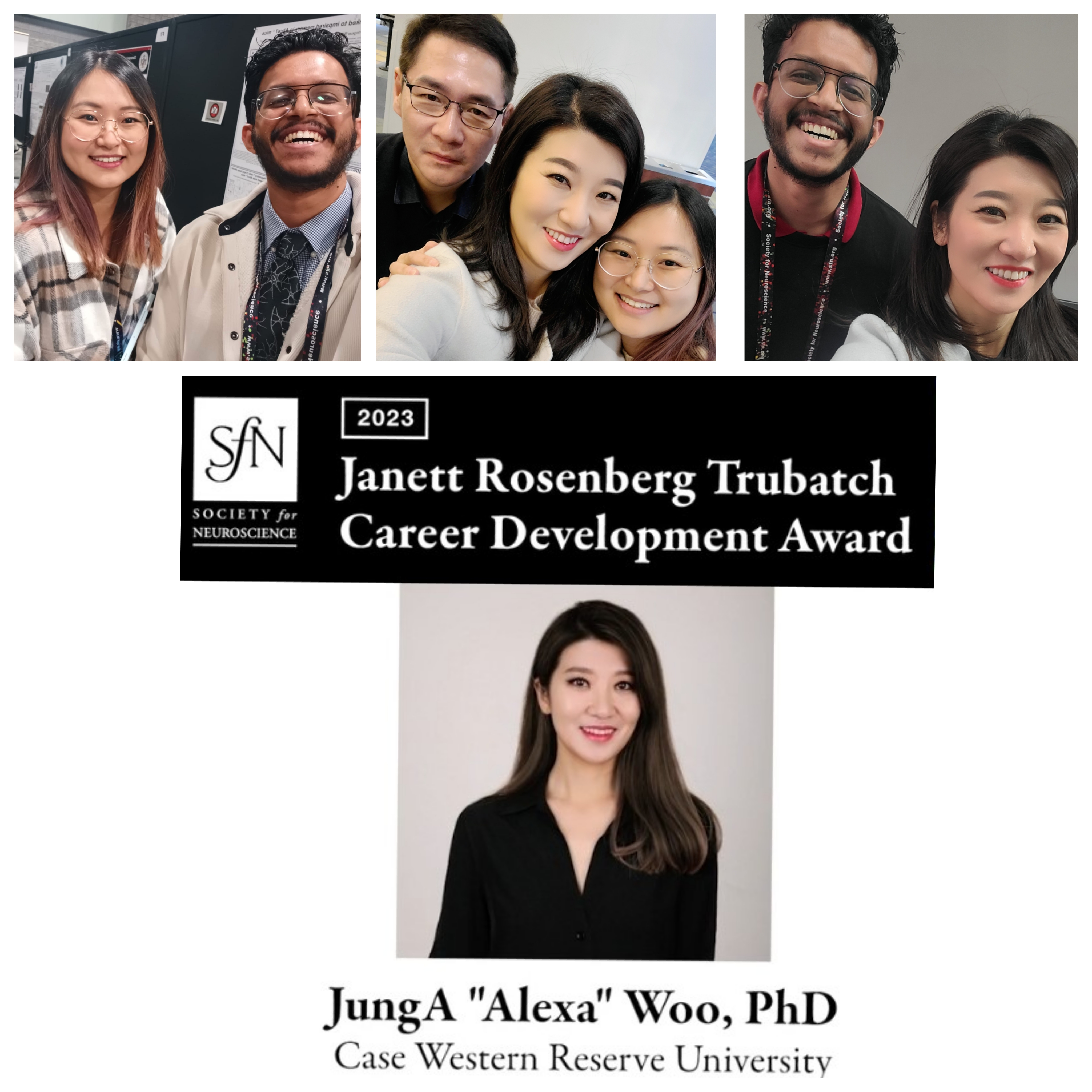
Dr. Woo received the Janett Rosenberg Trubatch Career Development Award from SFN!
Posted 11/16/23
Dr. Woo and Dr. Kang attended the 2024 Society for Neuroscience (SFN) conference in Washington D.C.
Dr. Woo received the Janett Rosenberg Trubatch Career Development Award from SFN! Congratulations to Dr. Woo on her great achievement.
It was a wonderful reunion for our lab alumni, Dr. Cenxiao (Catherine) Fang at the University of Minnesota and Shanon Rego at the Mayo Clinic. We are so proud of our alumni and extend our best wishes to them!
https: CWRU the daily
https: SFN 2023 Promotion of Women in Neuroscience Awards
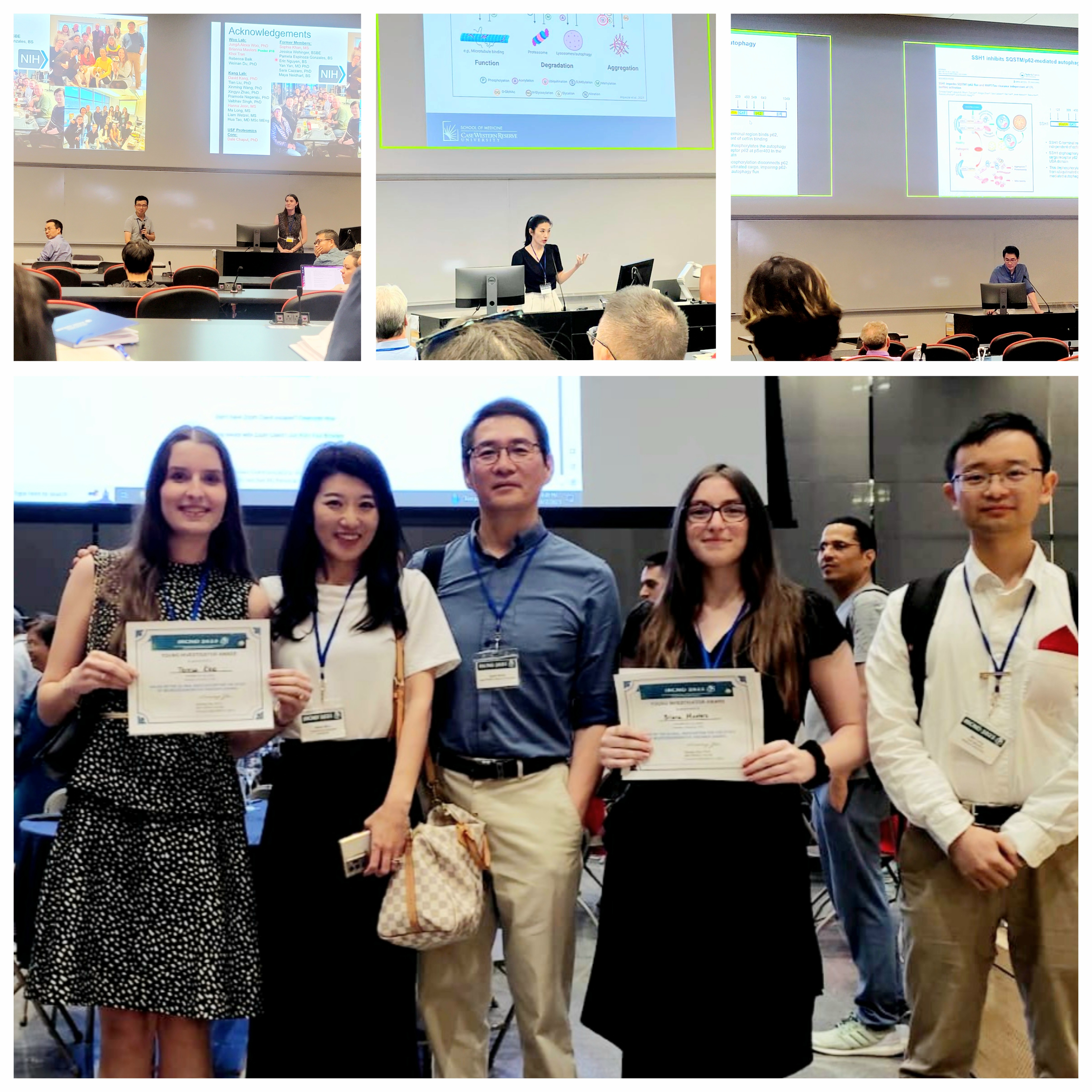
The Kang-Woo lab was honored to participate in the IRCND 2023 conference in Tucson, Arizona
Posted 10/24/23
Drs. Kang and Woo, accompanied by our PhD candidate Teresa, gave oral presentations. Our master's student Brianna also showcased her research in a poster presentation. Additionally, it was the first international conference for our PhD student, Ma.
We are both thrilled and proud that Teresa and Brianna received the best presentation awards. A big congratulations to them!!!
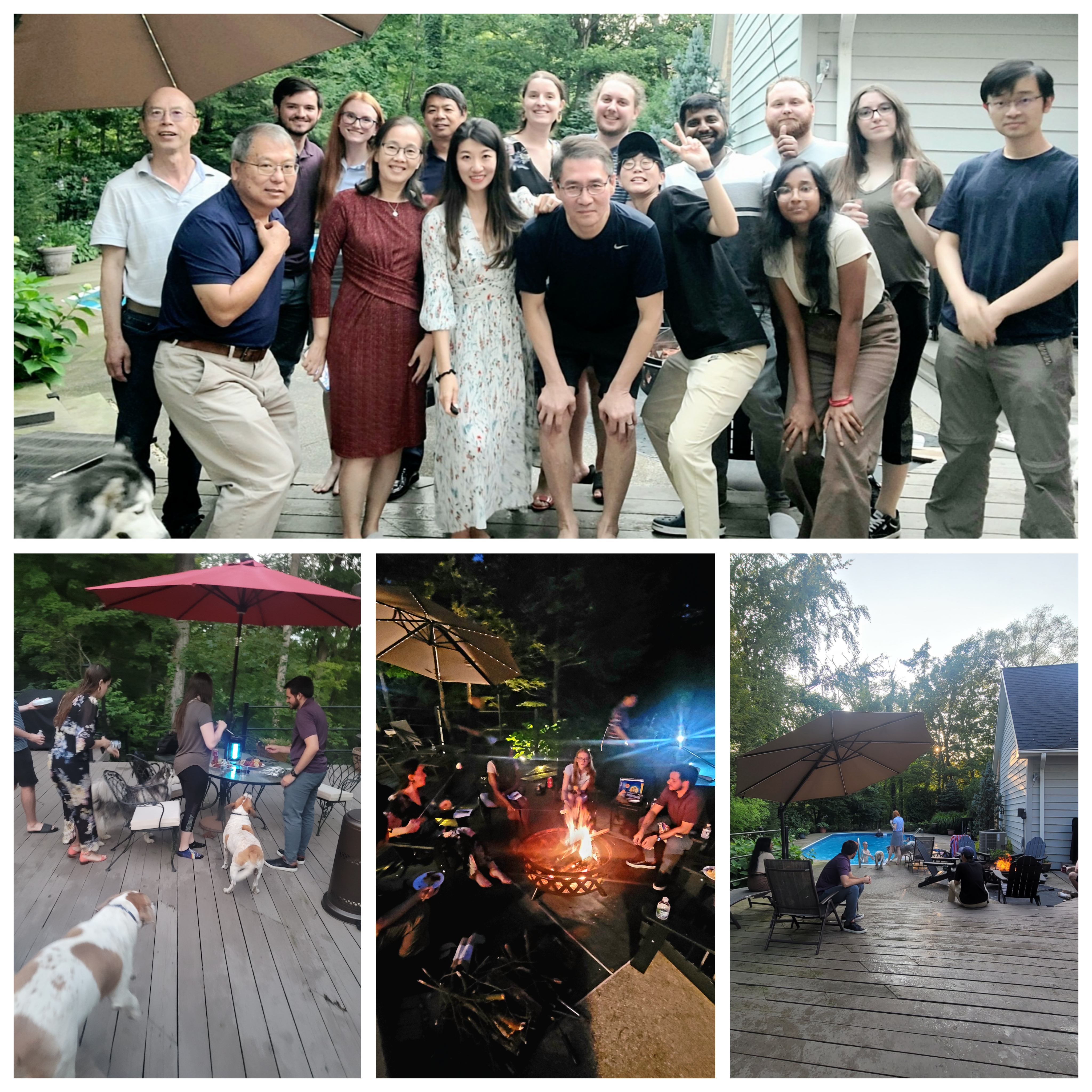
Kang-Woo lab Summer retreat
Posted 8/21/23
Before summer wrapped up, everyone in the Kang-Woo Lab gathered to recharge :) We threw an awesome pool party and had some fantastic food. You know how it goes: play hard and work even harder. Let's keep up that dedication and energy all year round!!
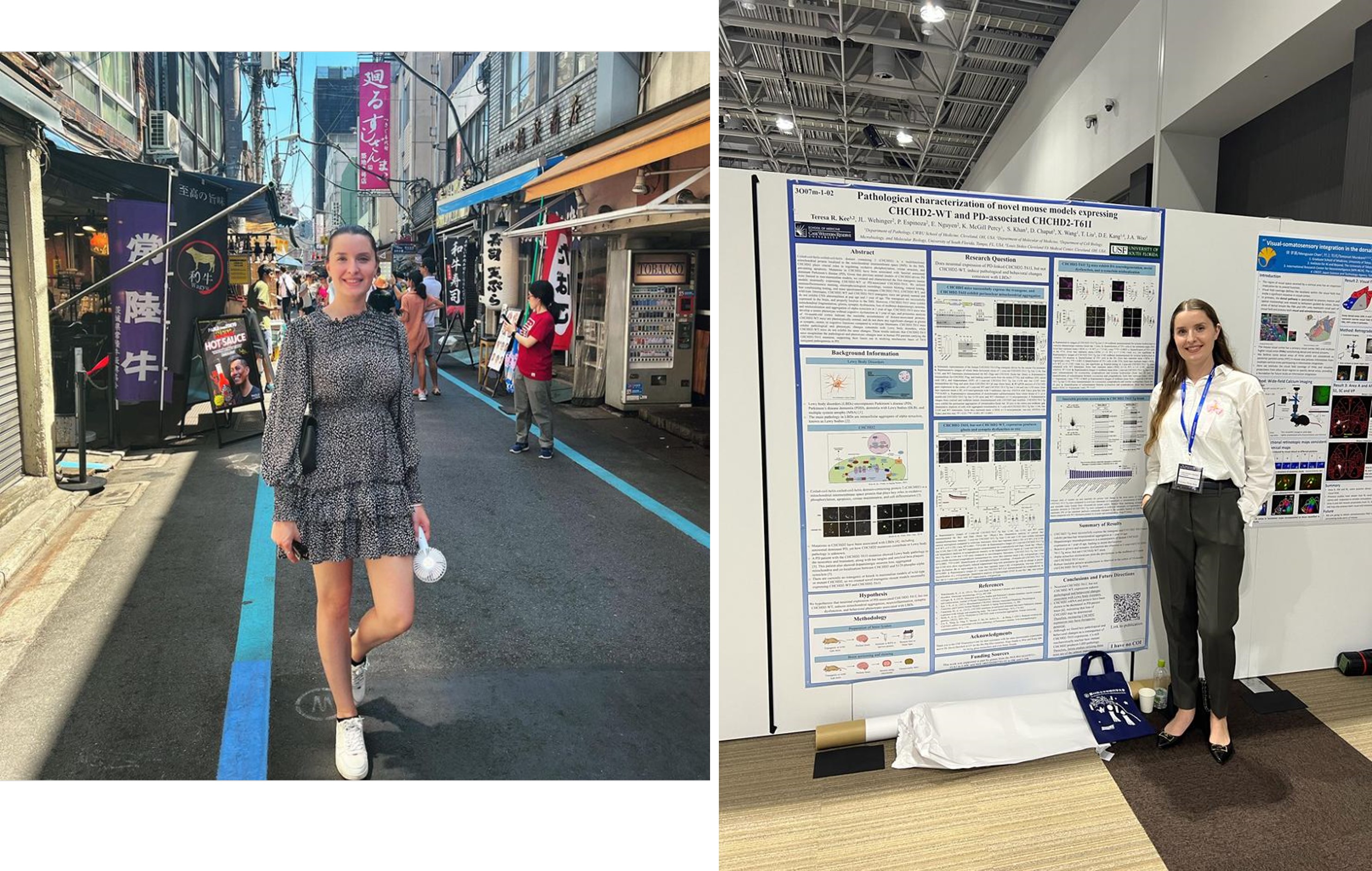
PhD Candidate, Teresa Kee Awarded Japan Neuroscience Society Travel Award
Posted 8/2/23
Our Our PhD candidate, Teresa Kee, received the Japan Neuroscience Society Travel Award to attend the Society for Neuroscience (SfN) annual meeting in Japan. At the event, she delivered both an oral and poster presentation, showcasing a part of her PhD dissertation projects. We are extremely proud of her. Enjoy your time in Japan, Teresa!
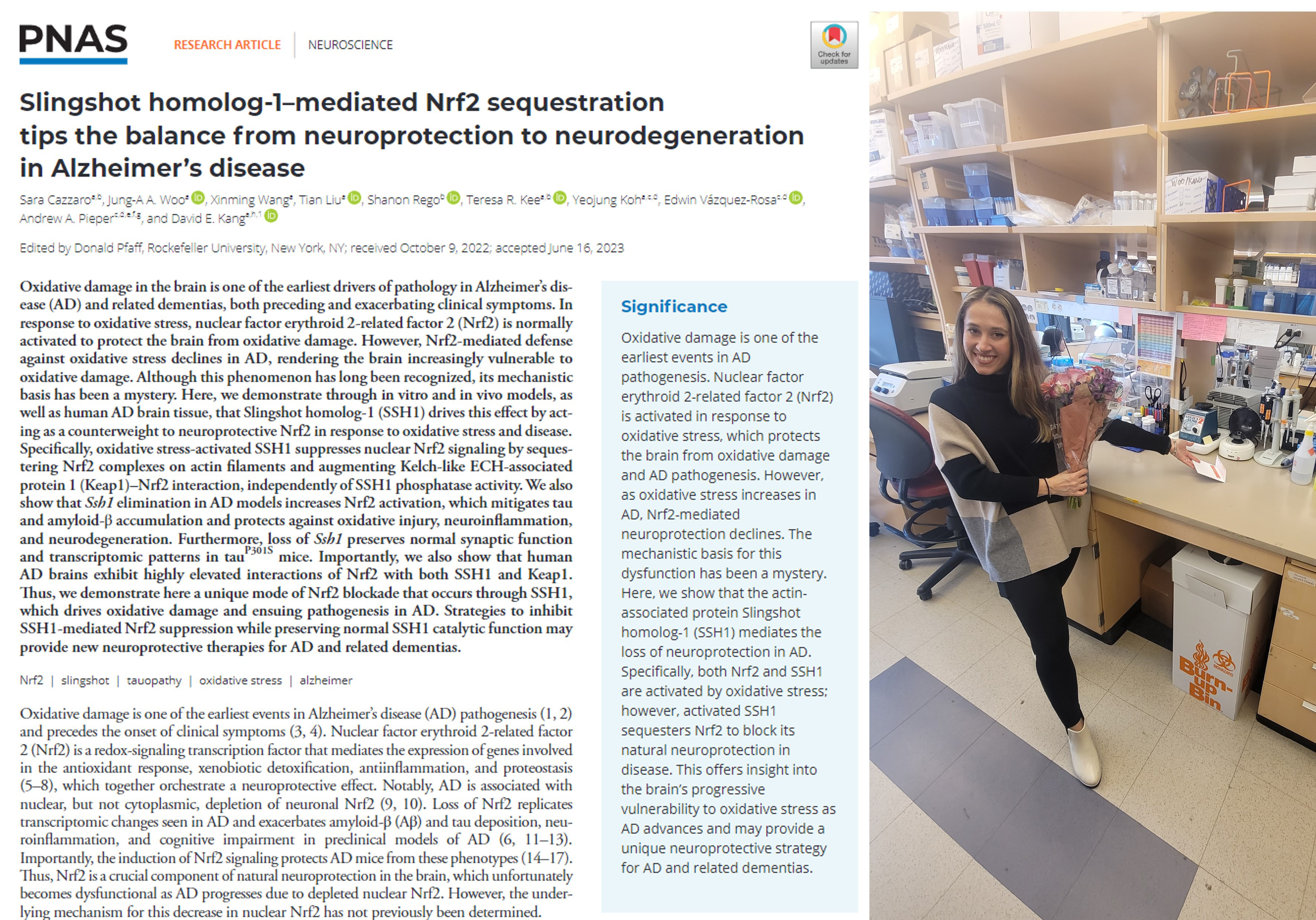
Congratulations on the publication of our PNAS paper and its feature in Case Daily!
Posted 7/27/23
The study titled "Slingshot homolog-1-mediated Nrf2 sequestration tips the balance from neuroprotection to neurodegeneration in Alzheimer's disease." discusses our findings on the protein Slingshot Homolog-1 (SSH1) and its role in inhibiting Nrf2's protective biological activity. Through genetic elimination of SSH1, we observed increased Nrf2 activation, resulting in a slowdown of oxidative damage and the accumulation of toxic plaques and tangles in the brain—both significant risk factors for AD.
It is worth noting that this remarkable work was a part of Sara's PhD thesis, and it marks her 3rd first-author paper during her PhD. Congratulations, Sara! :).
https://thedaily.case.edu/new-study-reveals-why-defense-against-brain-corrosion-declines-in-people-with-alzheimers-disease/
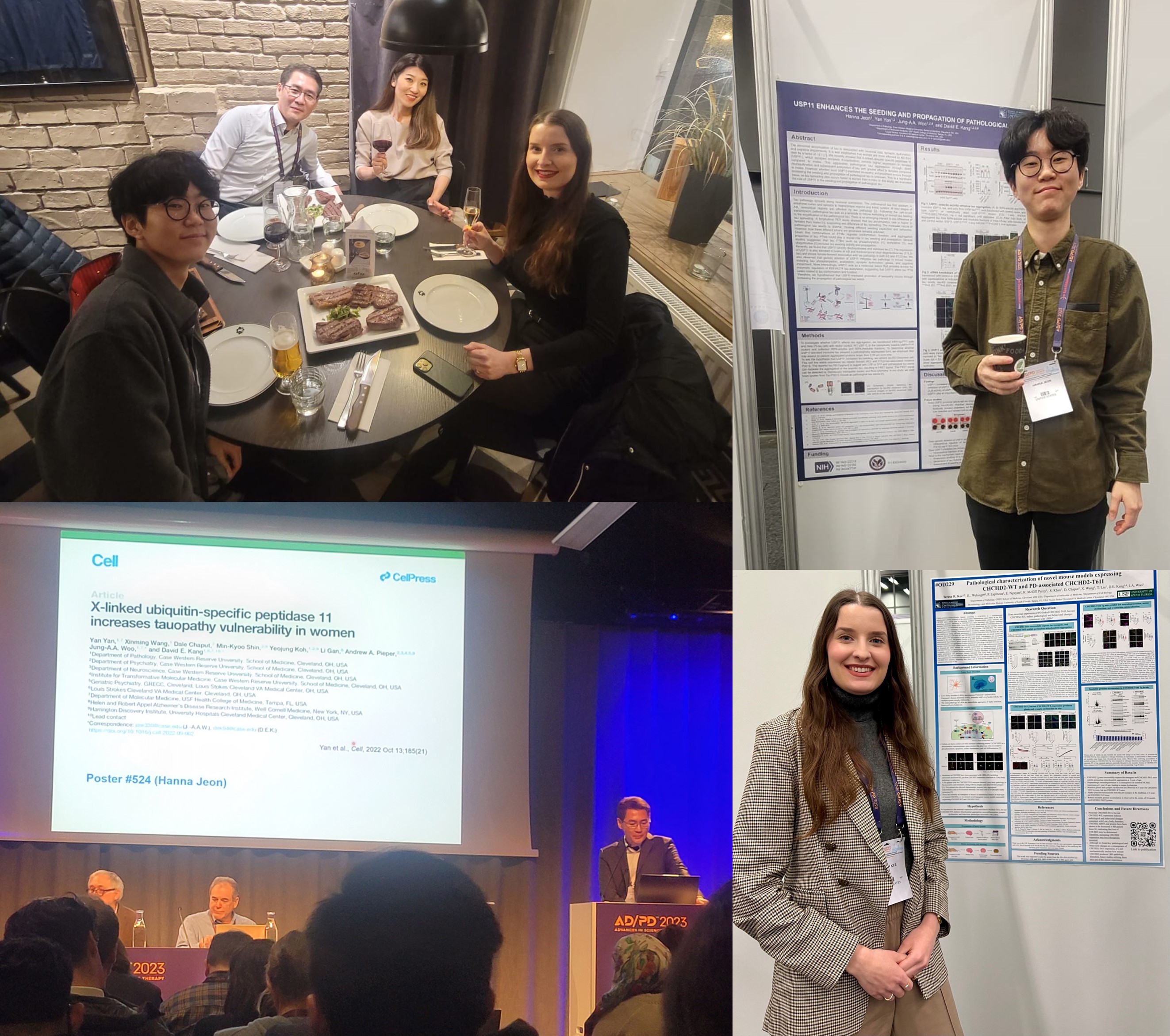
ADPD conference 2023 , Gothenburg in Sweden
Posted 5/31/23
Our PhD students, Hanna and Teresa, presented their exciting work at the conference in Gothenburg. We had a fantastic time indulging in delicious food and enjoying the company of colleagues. It was a truly fruitful and memorable event.
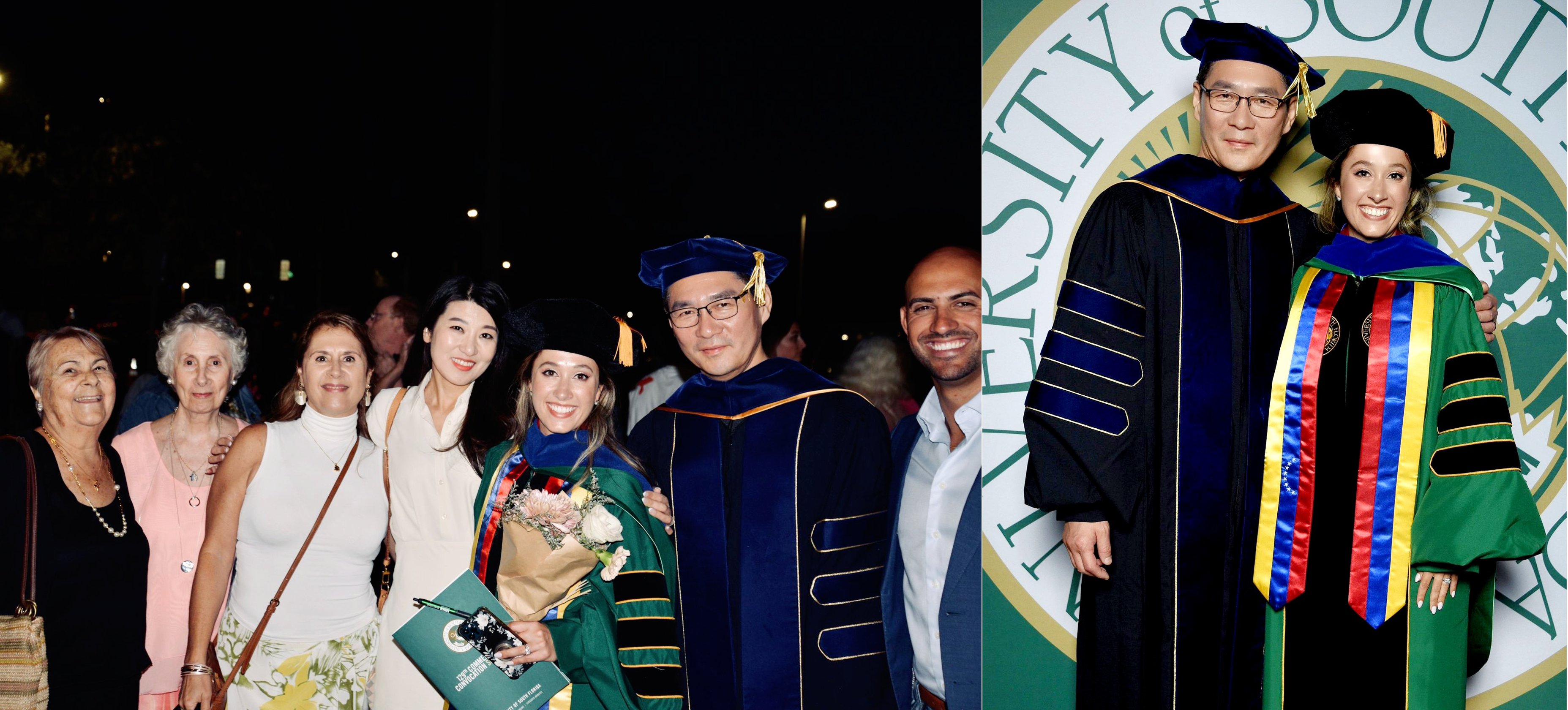
Dr. Cazzaro's PhD commencement
Posted 5/31/23
Congratulations to Dr. Cazzaro on her graduation and official receipt of her diploma! We are thrilled for her and wish her the very best. Dr. Cazzaro has achieved an impressive publication record, and her hard work has undoubtedly paid off. We are incredibly proud of her. Well done!
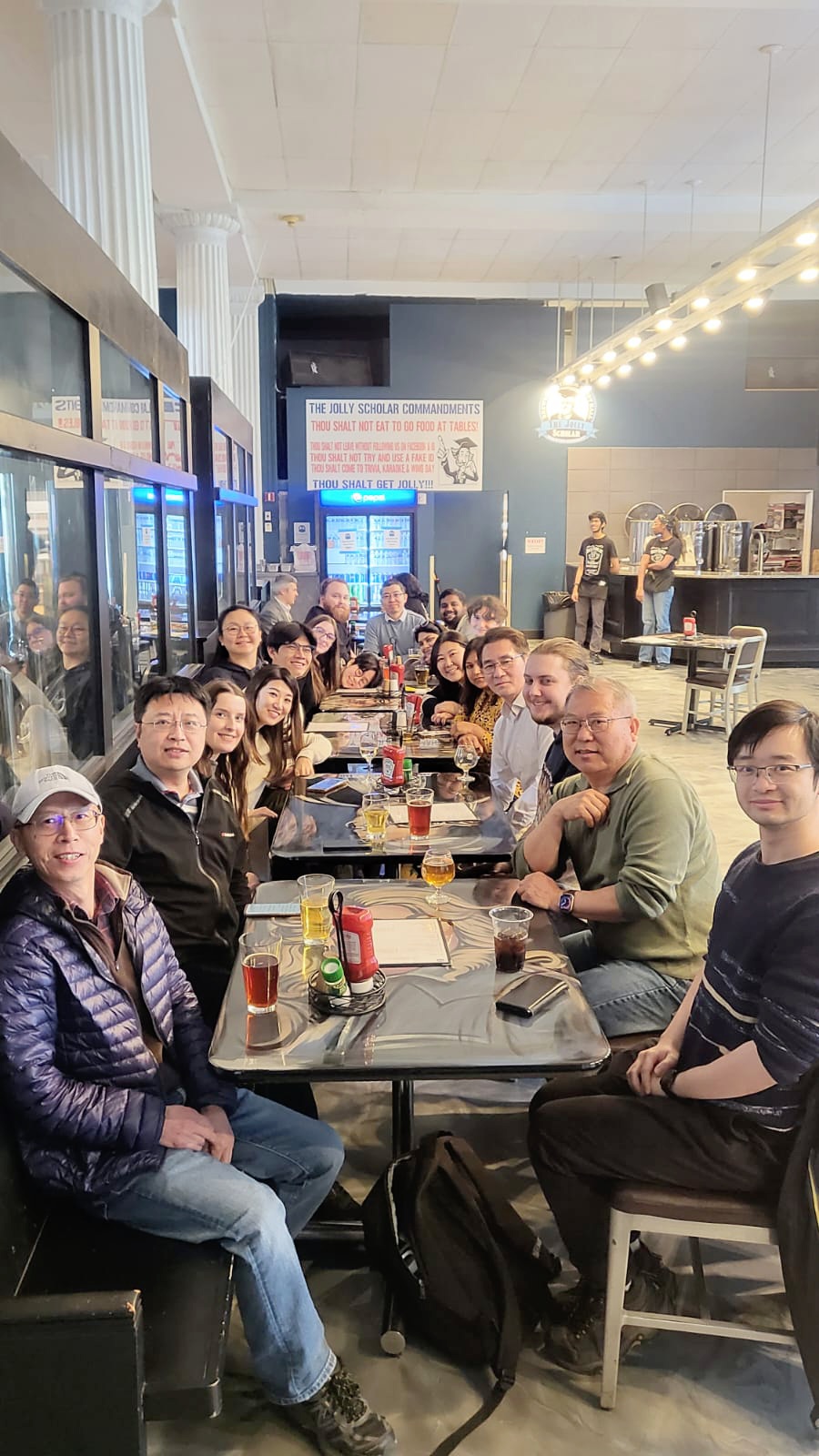
Farewell to our students and research assistants, and Welcome to new members
Posted 5/31/23
Our research assistants, Maya and Sophia, are moving on to achieve their next life goals. Additionally, we have Victoria and Yenna, who are graduating. We are so fortunate to have had you, and we send our best wishes to all of you. Thank you for being amazing lab members and more like friends. We also welcome Hua, Xingyu, and Weinan to join us! We are excited to have you and are looking forward to doing great science together and having lots of fun.
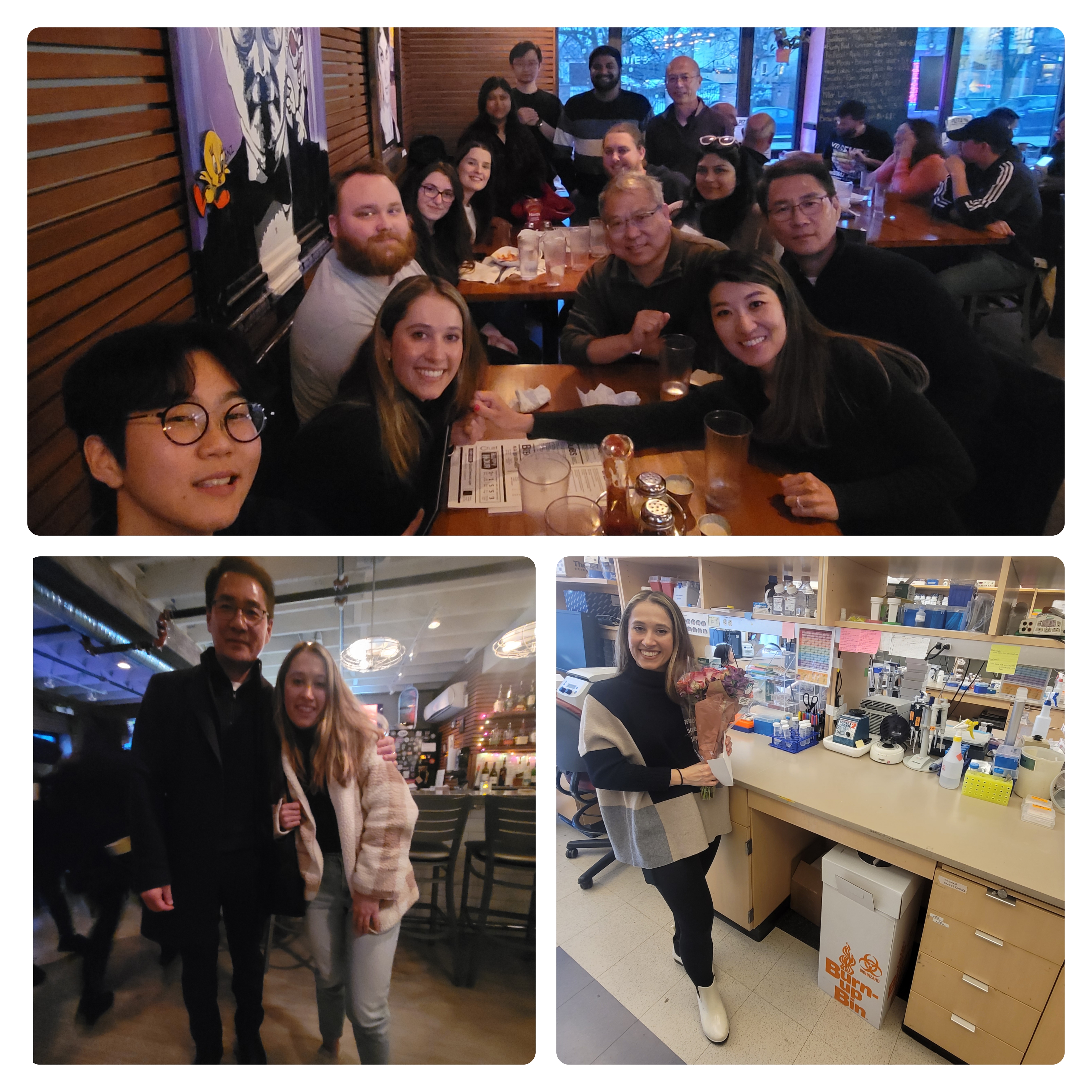
Sara Cazzaro has successfully defended her Ph.D. thesis!
Posted 3/8/23
We are thrilled to announce that Sara Cazzaro has successfully defended her Ph.D. thesis! Sara started her Ph.D. in 2017 and has since made significant contributions to our research efforts, publishing a total of 10 papers, including 3 as first author, including PNAS and autophagy. We extend our warmest congratulations to Dr. Cazzaro on this impressive achievement and wish her all the best in her future endeavors. We will miss you so much, Dr. Cazzaro!
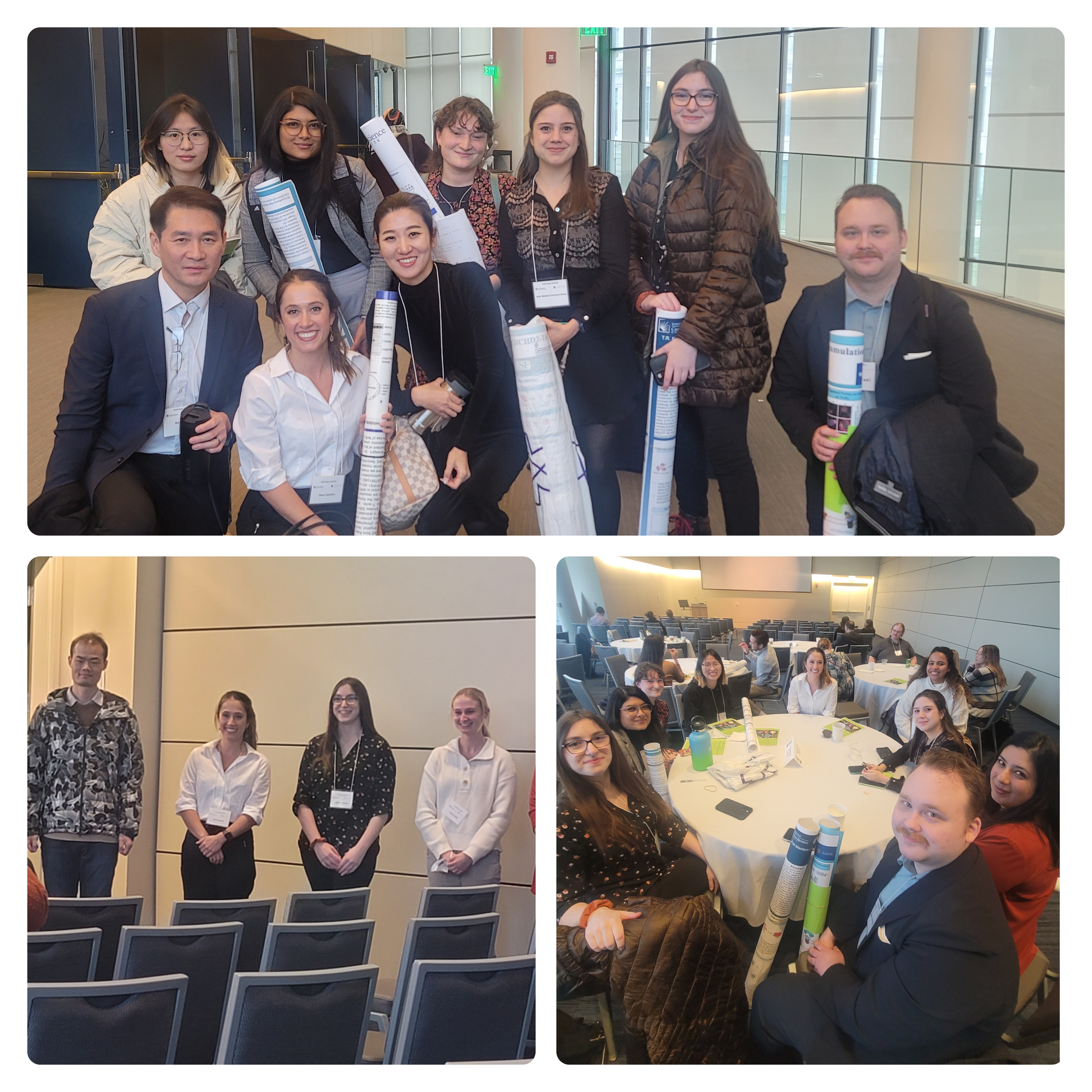
8th Annual Department of Pathology Research Retreat
Posted 11/19/22
We are happy to announce that two of our lab people won the best poster presentation awards! Congratulations Sara Cazzaro and Brianna Masters! Well done!
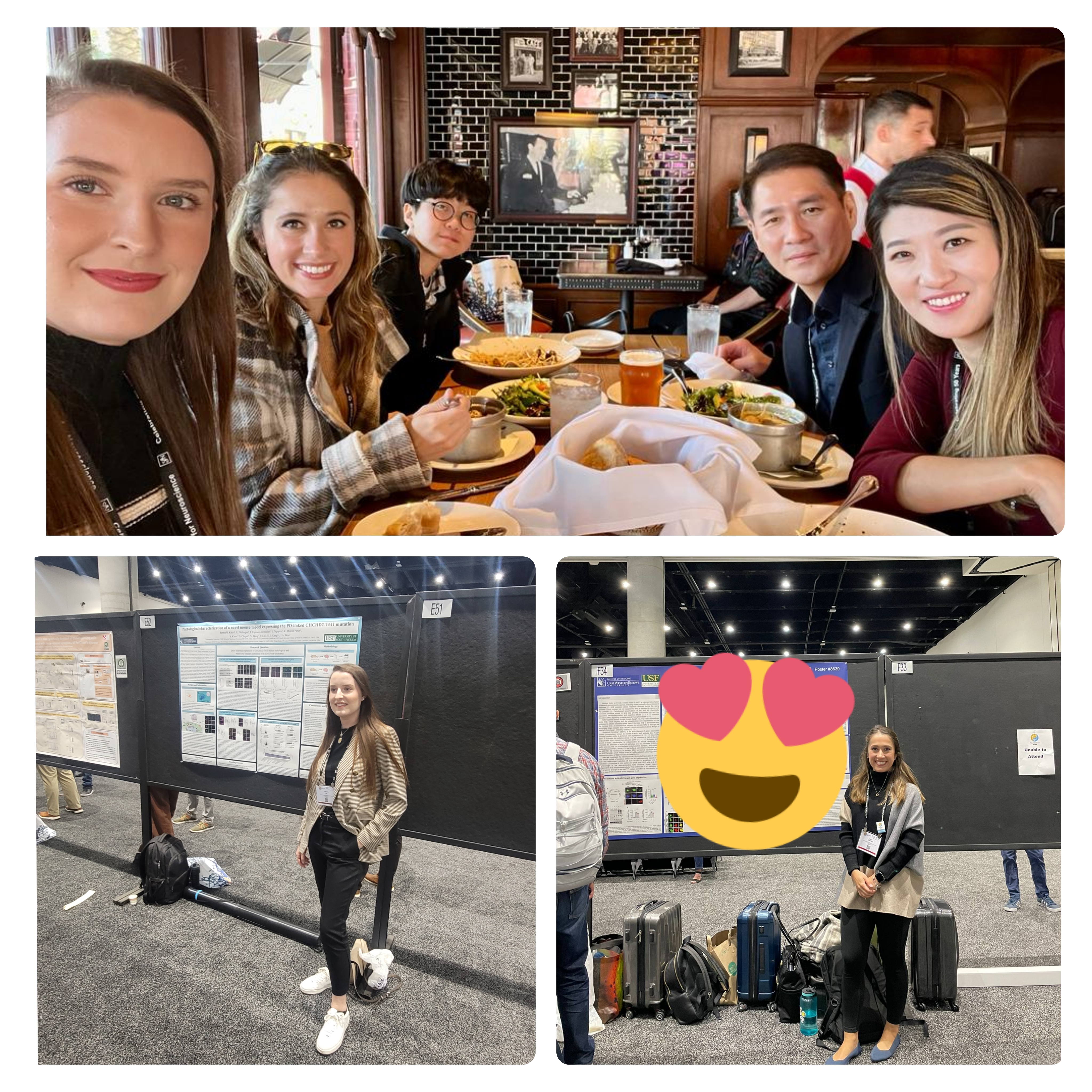
Kang-Woo Labs Ph.D. students attended the SFN 2022 in San Diego
Posted 11/11/22
We had so much fun and enjoyed the beautiful weather in San Diego. We also met lots of collaborators and friends, and Sara and Teresa had fun presenting their posters at SFN. Congratulations!
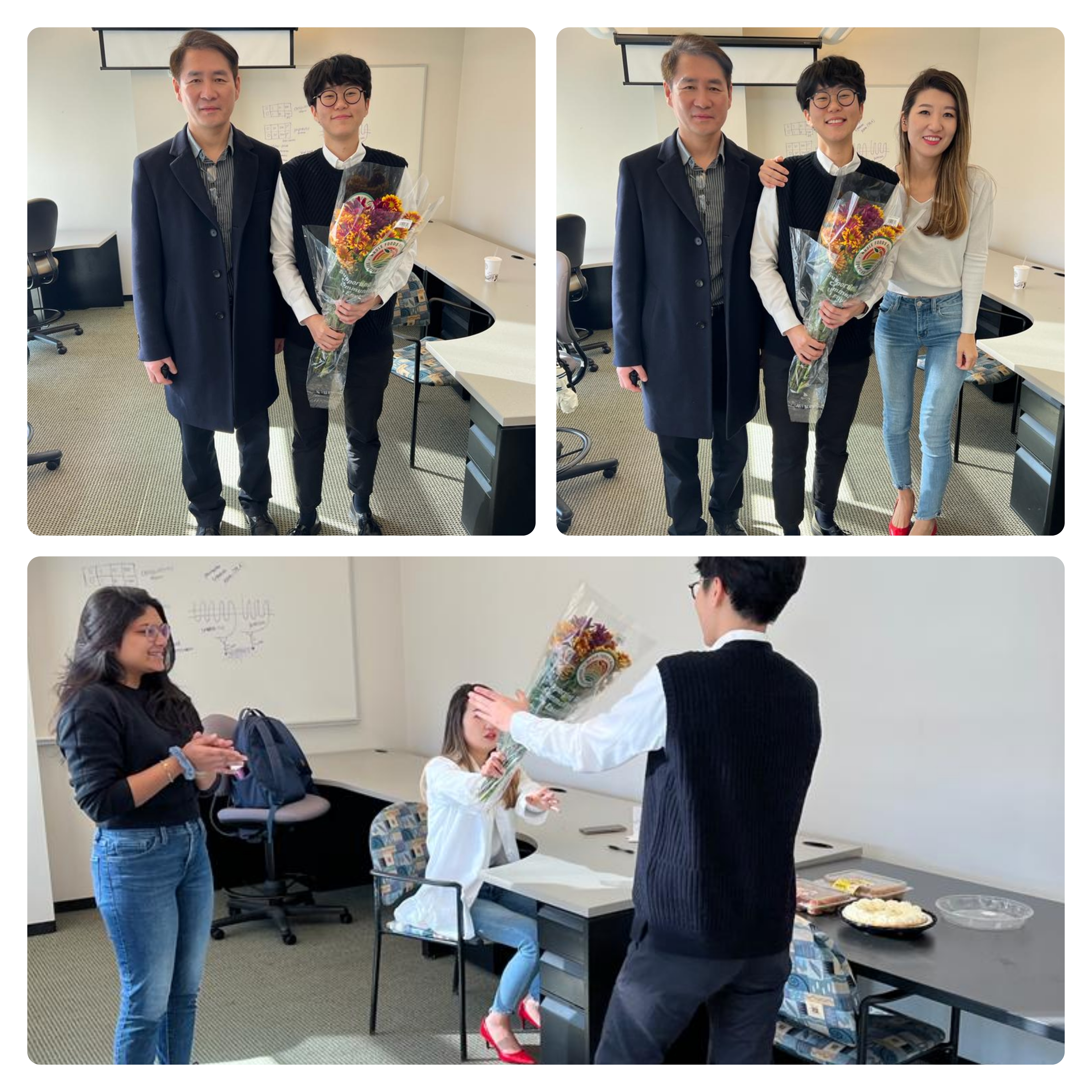
Hanna Jeon successfully passed her comprehensive qualifying exam!
Posted 11/08/22
We are so proud and happy for Hanna. Let's give it up for Hanna!
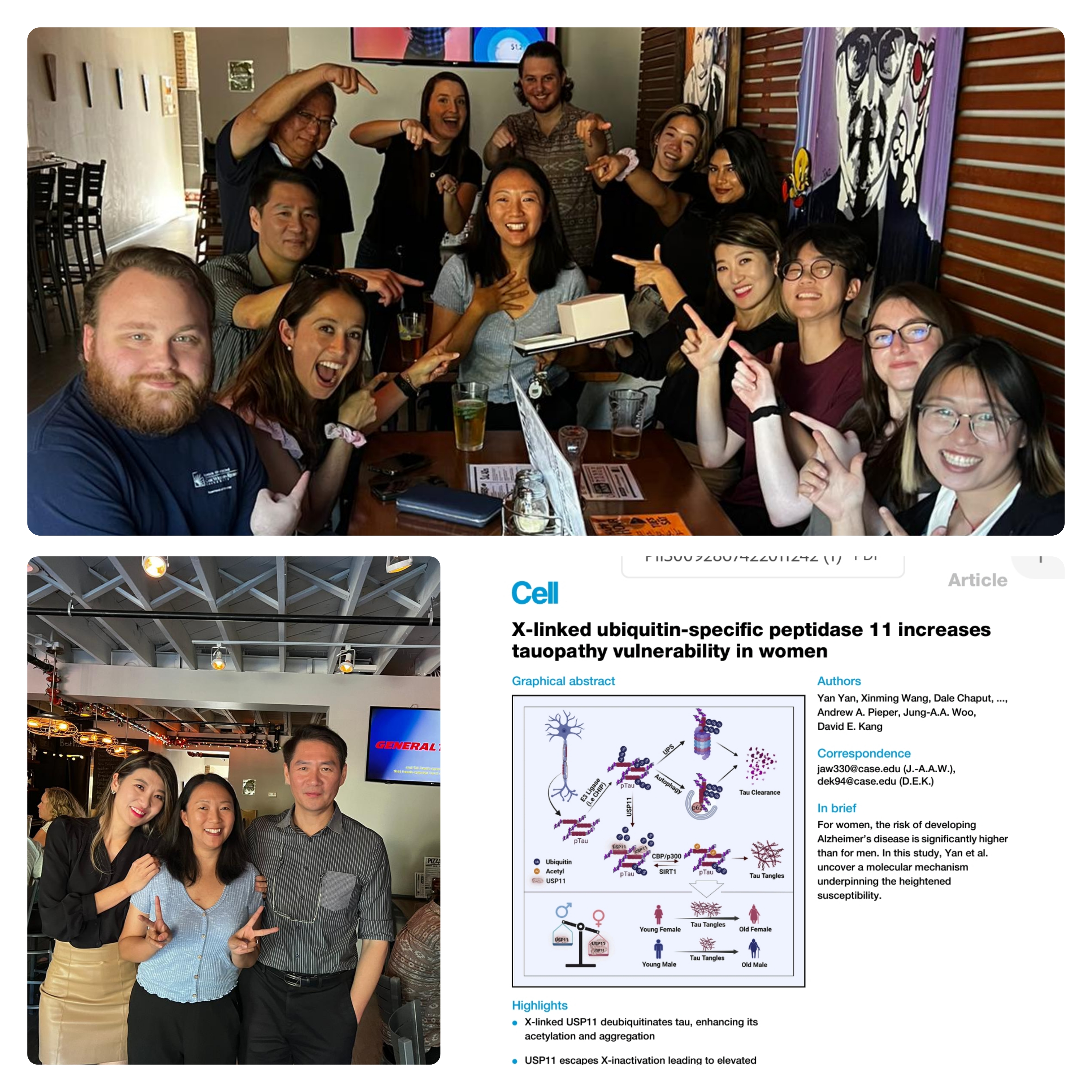
Kang-Woo lab publishes in Cell!
Posted 10/04/22
Yan's PhD thesis work is now finally published in Cell. Kang-Woo lab is excited to announce that we published our first Cell paper together. While women show higher tau aggregates and increased risk for AD than men, the underlying mechanisms for this vulnerability have not been elucidated. Our work first discovered the excessive USP11 in the brains of women contributes to tau pathogenesis.
https://thedaily.case.edu/why-women-may-be-more-susceptible-to-alzheimers-disease/
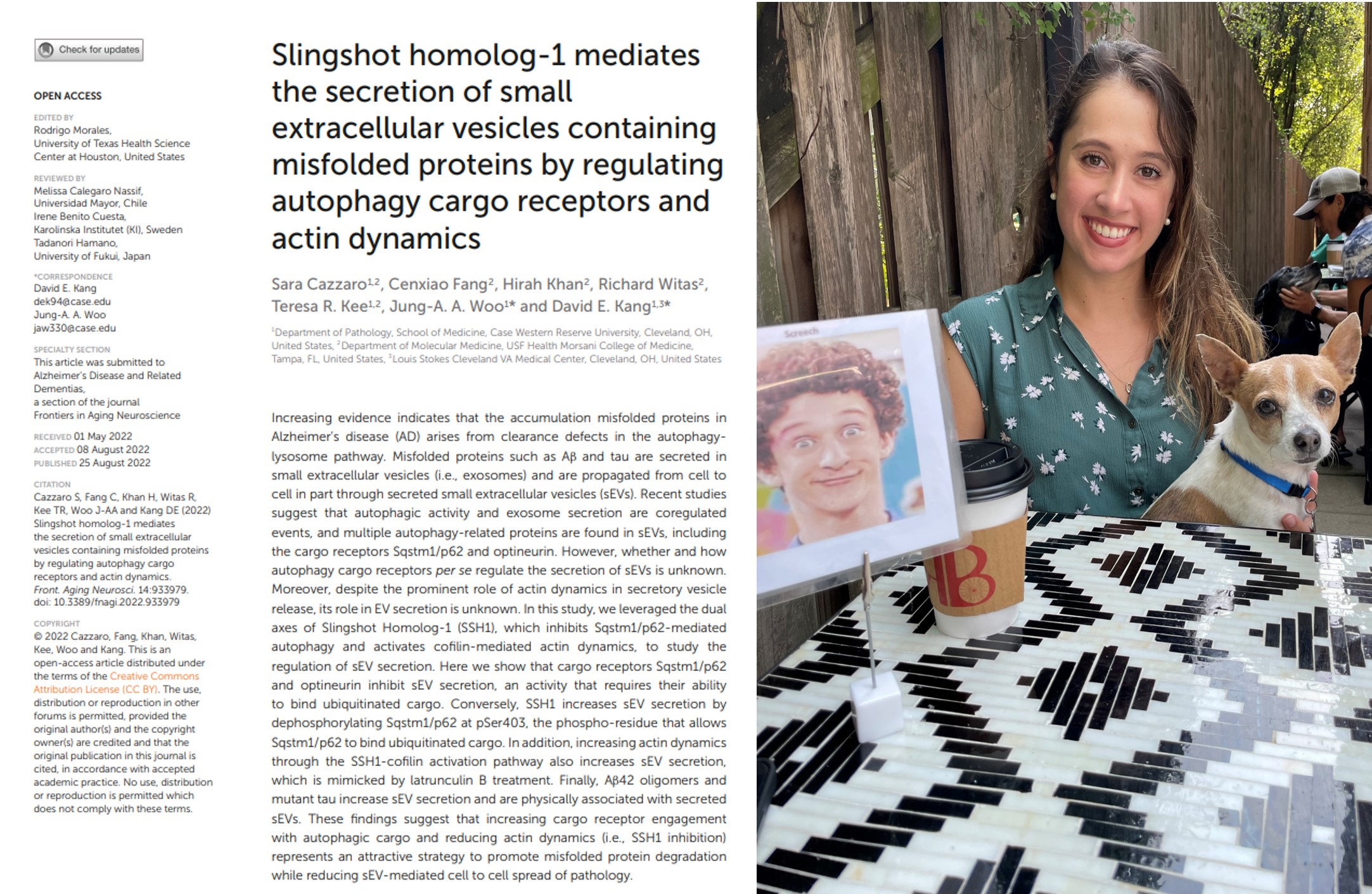
Sara Cazzaro publishes first author paper!
Posted 08/25/22
Ph.D. student Sara published 5 co-author papers, and finally published her first first-author paper. Congratulations! Two more first-author papers are submitted and fingers crossed!
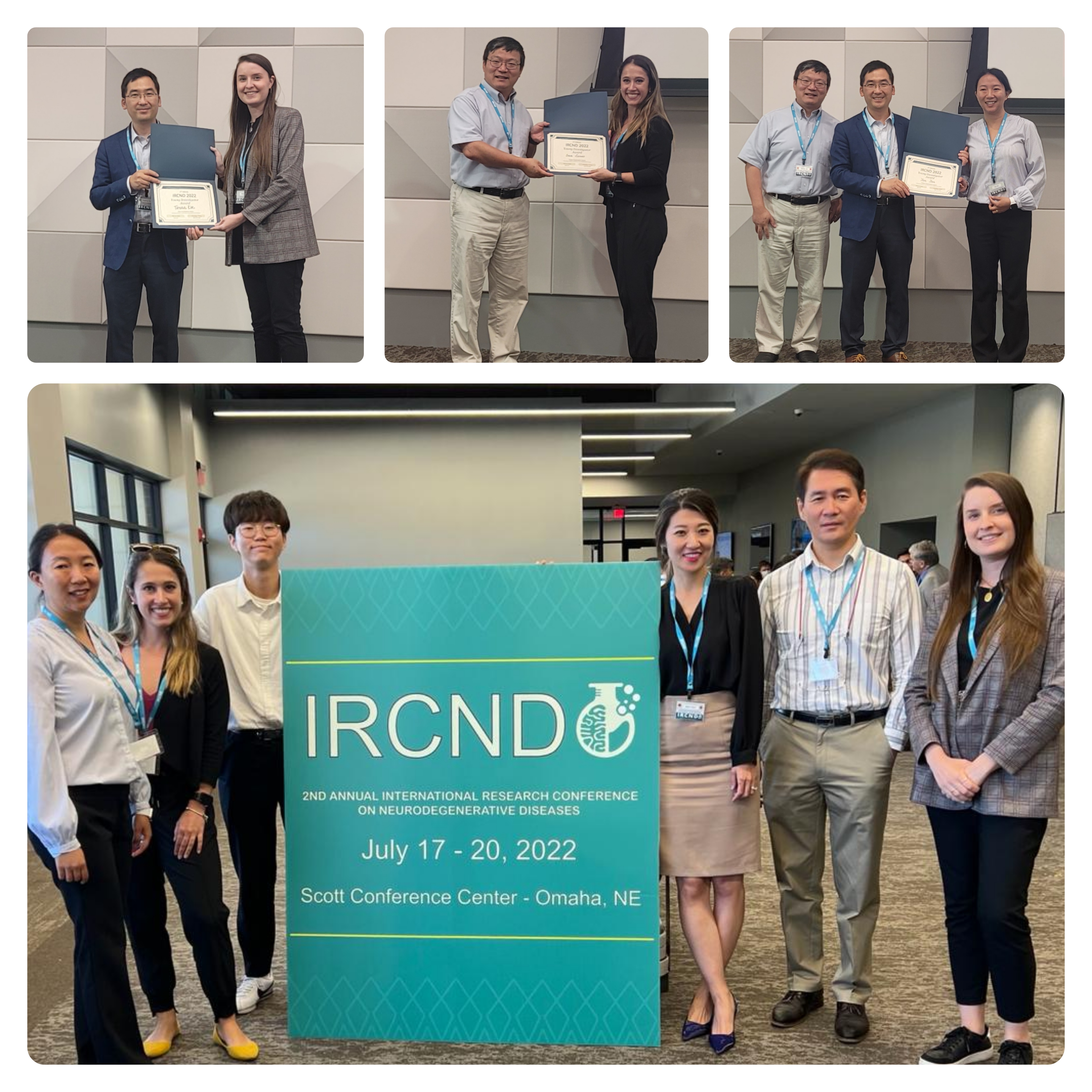
Kang-Woo labs attended the IRCND conference in Omaha!
Posted 07/18/22
We had a blast and learned a lot. Ph.D. candidate Teresa Kee received the best oral presentation award. Ph.D. candidate, Sara Cazzaro and Dr. Yan Yan won the best poster presentation awards. Congratulations, everyone! We are so proud of you guys.
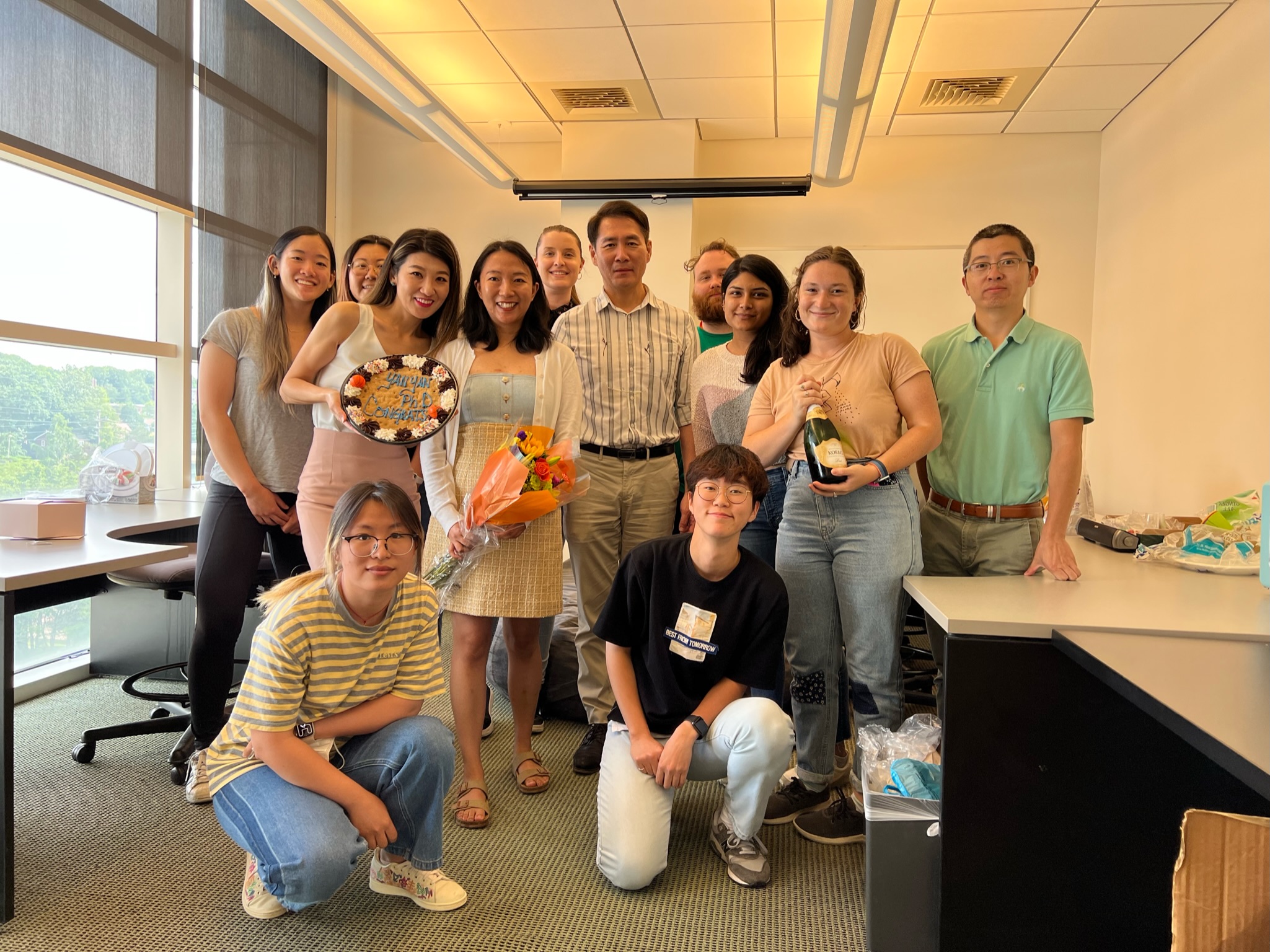
Yan Yan successfully defends PhD dissertation!
Posted 07/07/22
Yan Yan successfully defended her Ph.D. thesis “X-linked ubiquitin specific peptidase 11 (USP11) increases tauopathy vulnerability in women” on July 7th, 2022! We appreciate Dr. Rakez Kayed for serving as Yan’s outside chair! Congratulations Dr. Yan! We are so proud of you.
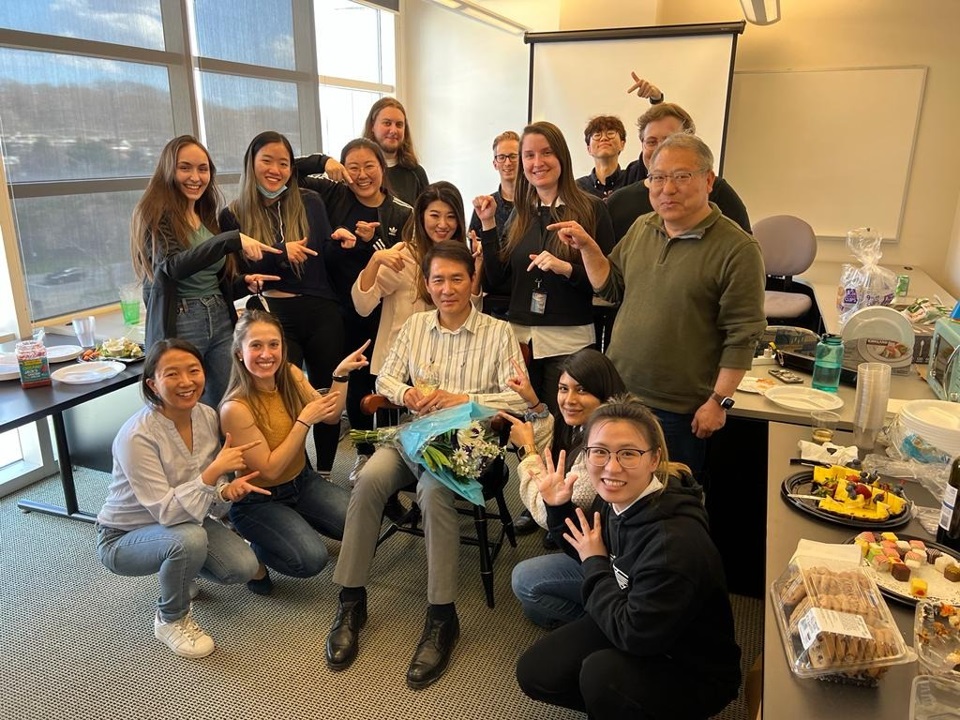
Howard T. Karsner Endowment Professorship
Posted 04/14/22
Dr. David Kang received the Howard T. Karsner endowment Professorship. Dr. Howard Karsner founded the institute of Pathology of Western Reserve University in 1929. Dr. Kang is honored to be a recipient of the Howard T. Karsner endowment Professorship. Congratulations Dr. Kang!
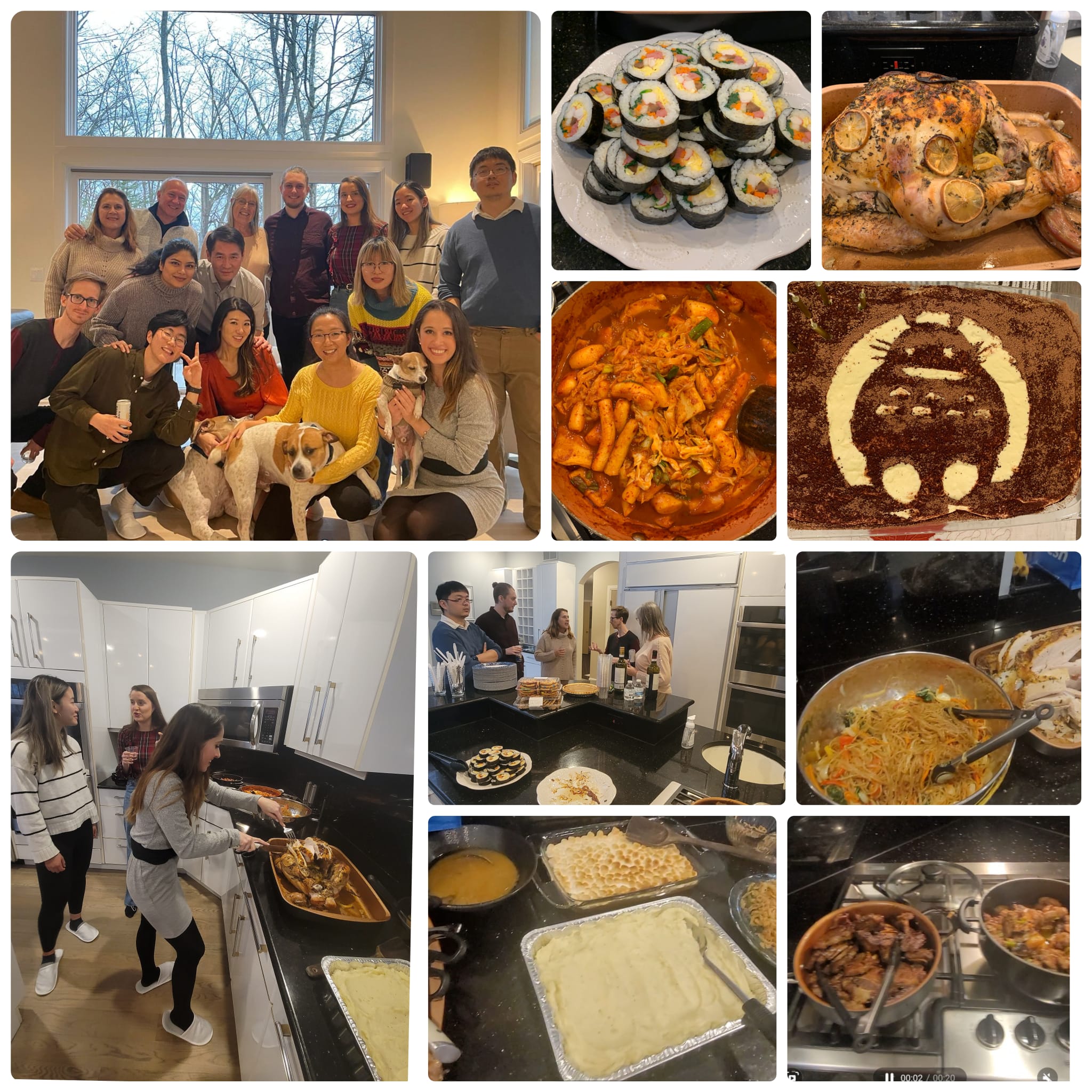
Happy Thanksgiving from the Kang-Woo lab!
Posted 11/26/21
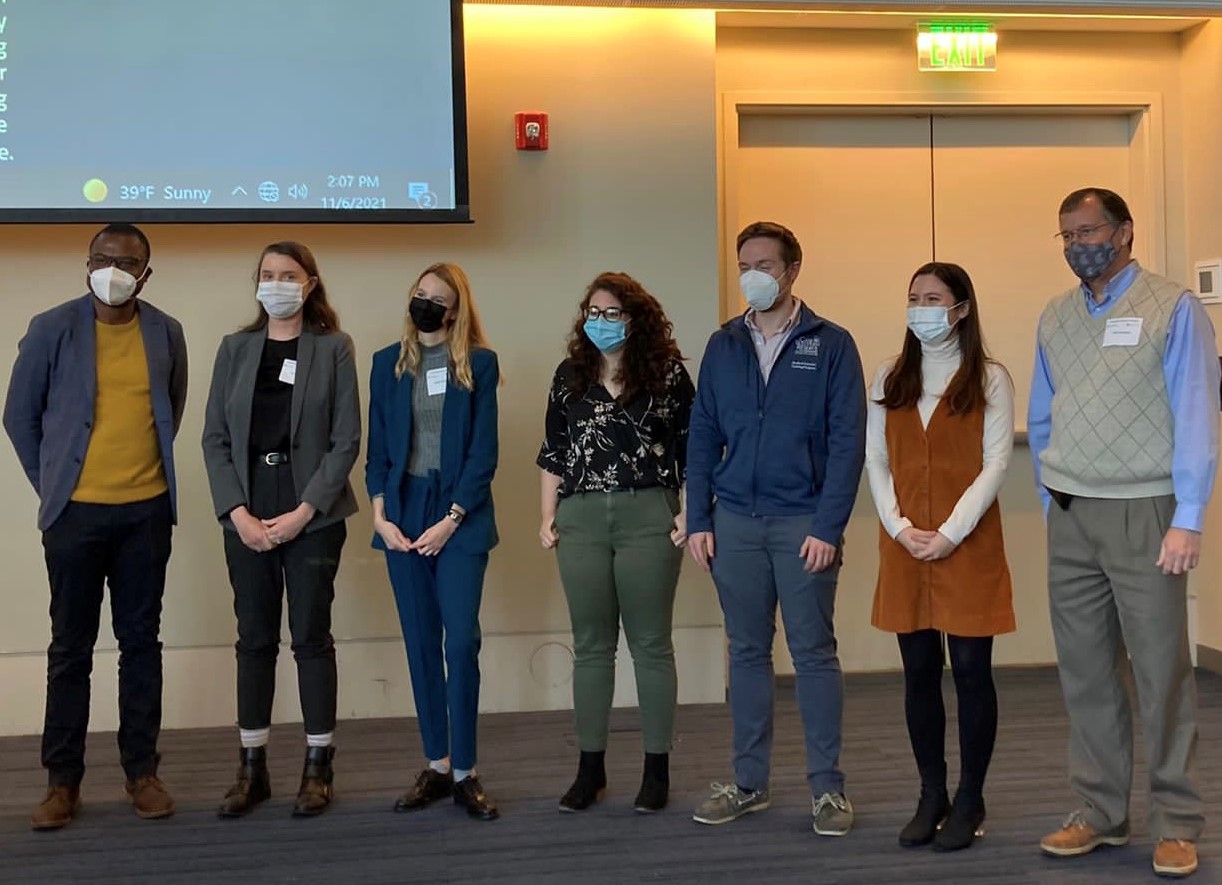
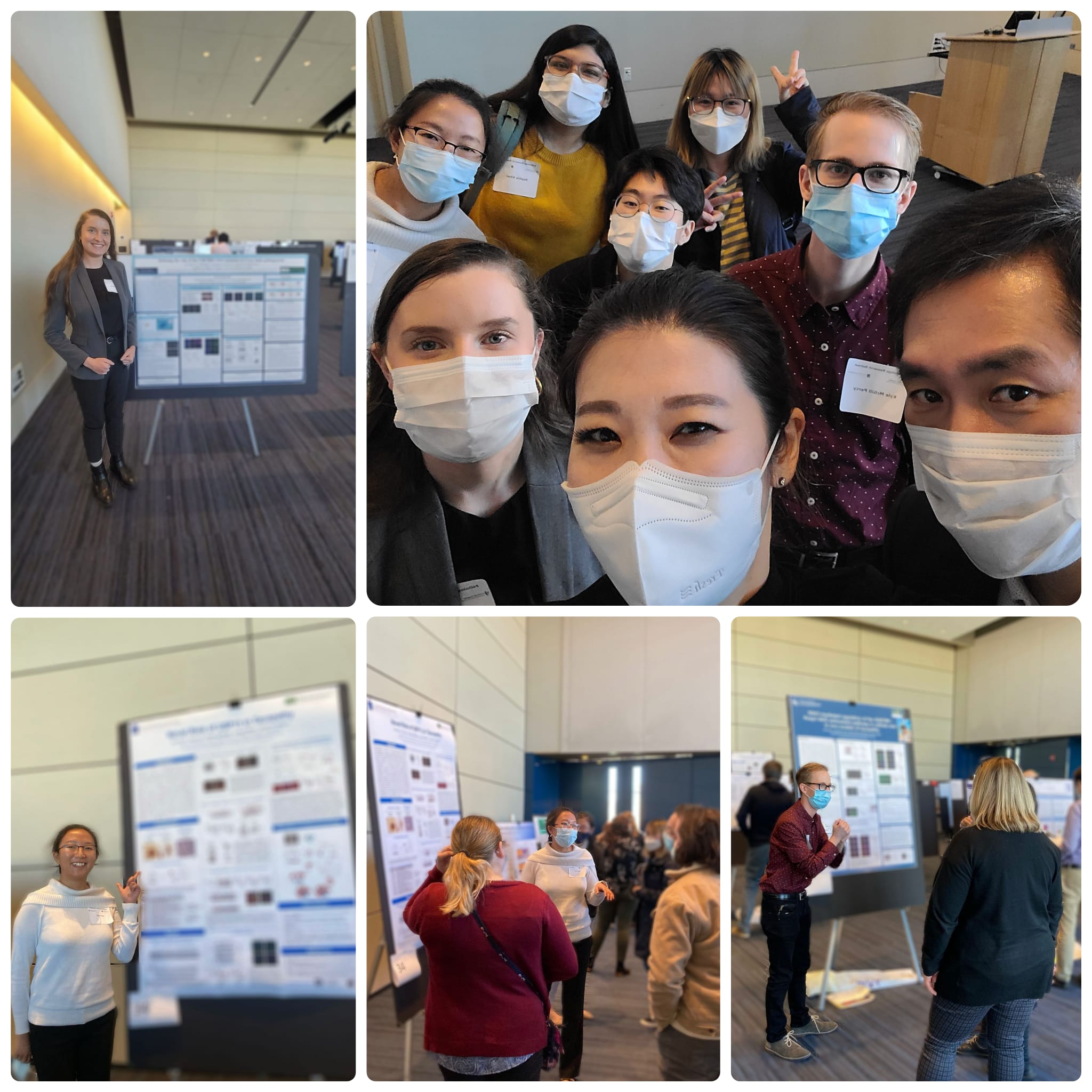
Teresa Kee awarded best poster presentation at the 7th annual department of pathology research retreat!
Posted 11/06/21
Teresa Kee has been awarded for her poster presentation on "Defining the role of the CHCHD2 T61I mutation in Lewy body pathogenesis". Congratulations Teresa!
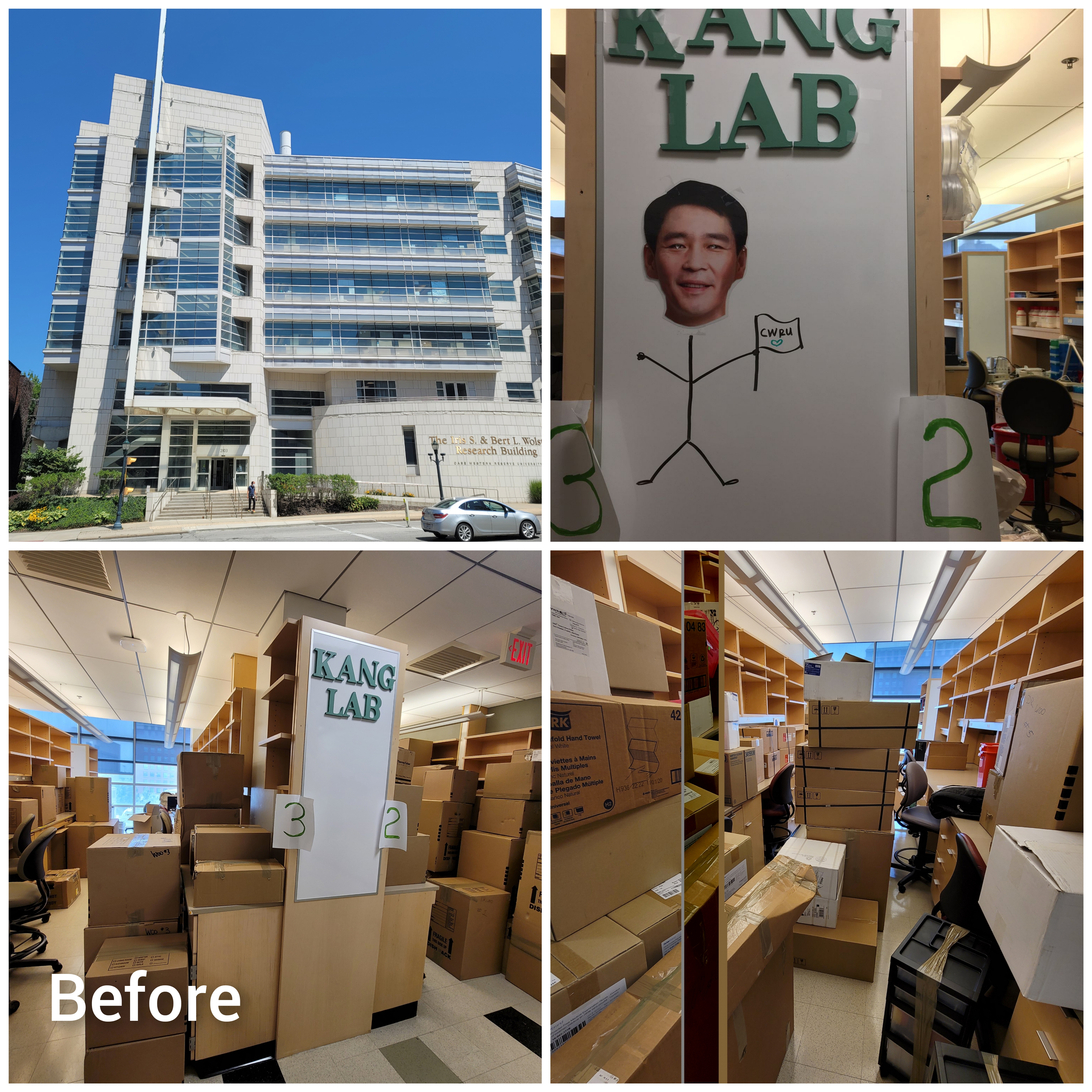
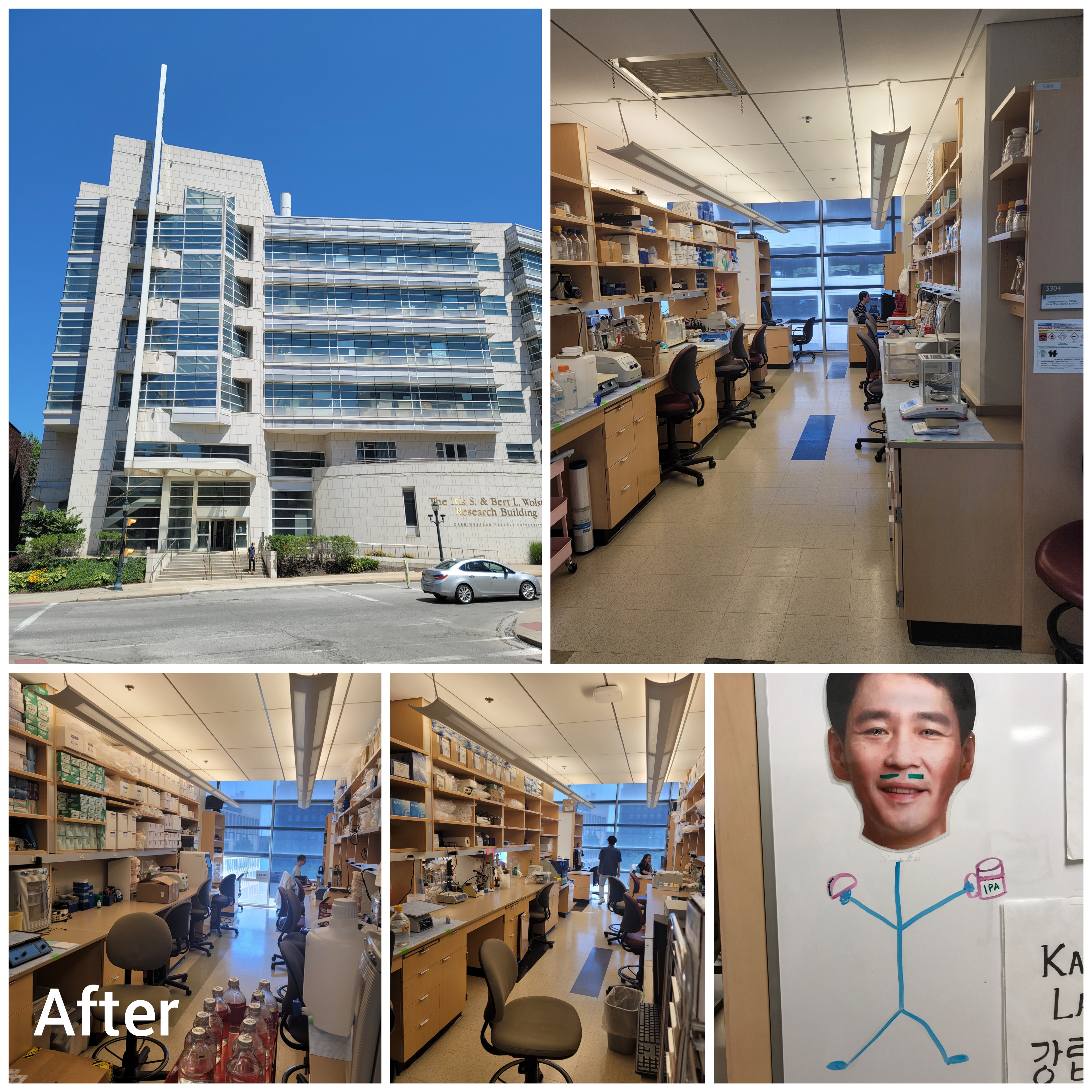
News!
Posted 08/06/21
We moved to Case Western Reserve University in Cleveland. OH! Our lab are finally settled! We are excited to continue to do high-impact research at a wonderful new university!
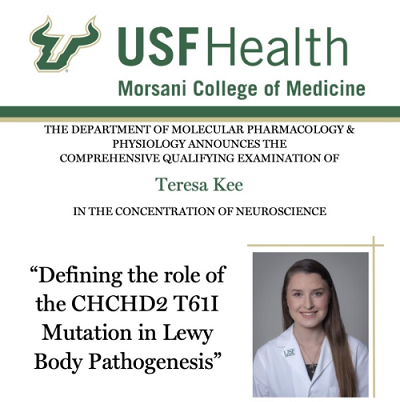
Teresa Kee successfully passed her comprehensive qualifying exam!
Posted 06/05/21
We are so happy for Teresa passing her CQE! Congratulations to Ph. D candidate Teresa!
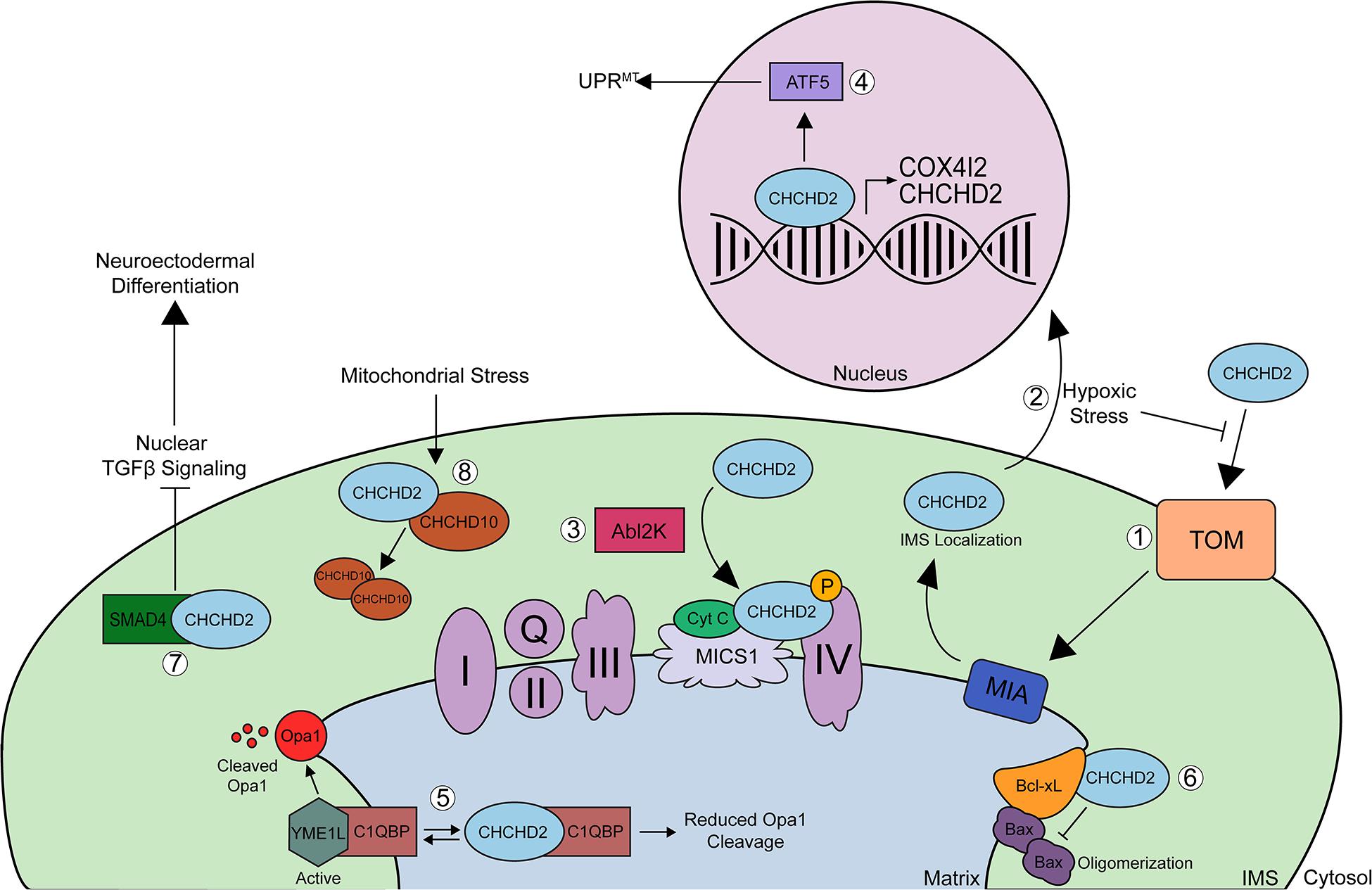
New Publication!
Posted 04/22/21
Mitochondrial CHCHD2: Disease-associated mutations, physiological functions, and current animal models.
https://pubmed.ncbi.nlm.nih.gov/33967741/

Sara Cazzaro awarded the Dorothy Benjamin Graduate Fellowship!
Posted 01/11/21
Sara Cazzaro has been awarded the Dorothy Benjamin Graduate Fellowship in Alzheimer's Disease due to her dedicated study of the protein Slingshot 1 (SSH1) and its affects on mitochondria in context of Alzheimer's disease.
https://health.usf.edu/medicine/byrd
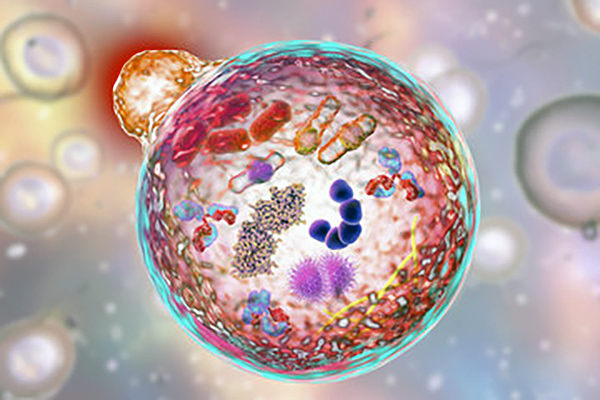
Dr. Kang, doctoral student Cenxiao Fang, and team highlighted on USF Health website for new discovery of enzyme SSH1's ability.
Posted 10/12/20
This article takes a look at Dr. Kang and team's discovery of a defect early in autophagy that may help develop SSH1 inhibitors to treat Alzheimer’s and other neurodegenerative diseases.
https://hscweb3.hsc.usf.edu/blog/2020/10/12/enzyme-ssh1-impairs-the-disposal-of-accumulating-cellular-garbage-leading-to-brain-cell-death/
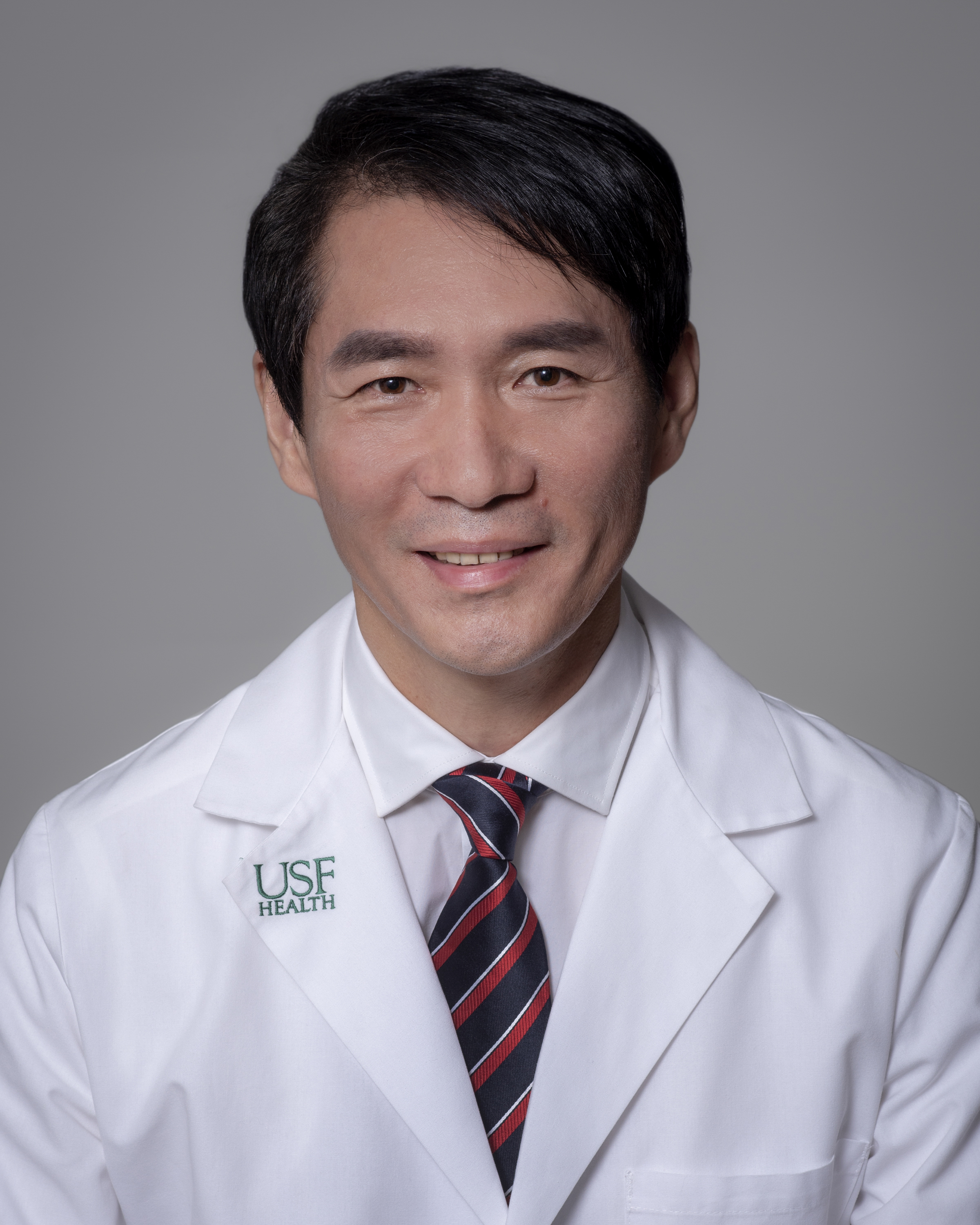
Dr. David Kang and Dr. Alexa Woo lead NIH-funded research project!
Posted 07/15/20
Dr. Kang is the Director of Basic Research at the Byrd Institute and Professor of Molecular Medicine. Dr. Woo, also a Byrd investigator, is an Assistant Professor in the department of Molecular Pharmacology and Physiology. The new R01 project aims to understand how USP11, a multifunctional enzyme known to remove ubiquitin chains from proteins, contributes to tau tangle pathology in the development of Alzheimer's disease (AD).

New Publication!
Posted 05/05/20
CHCHD10-regulated OPA1-mitofilin complex mediates TDP-43-induced mitochondrial phenotypes associated with frontotemporal dementia.
https://pubmed.ncbi.nlm.nih.gov/32369233/
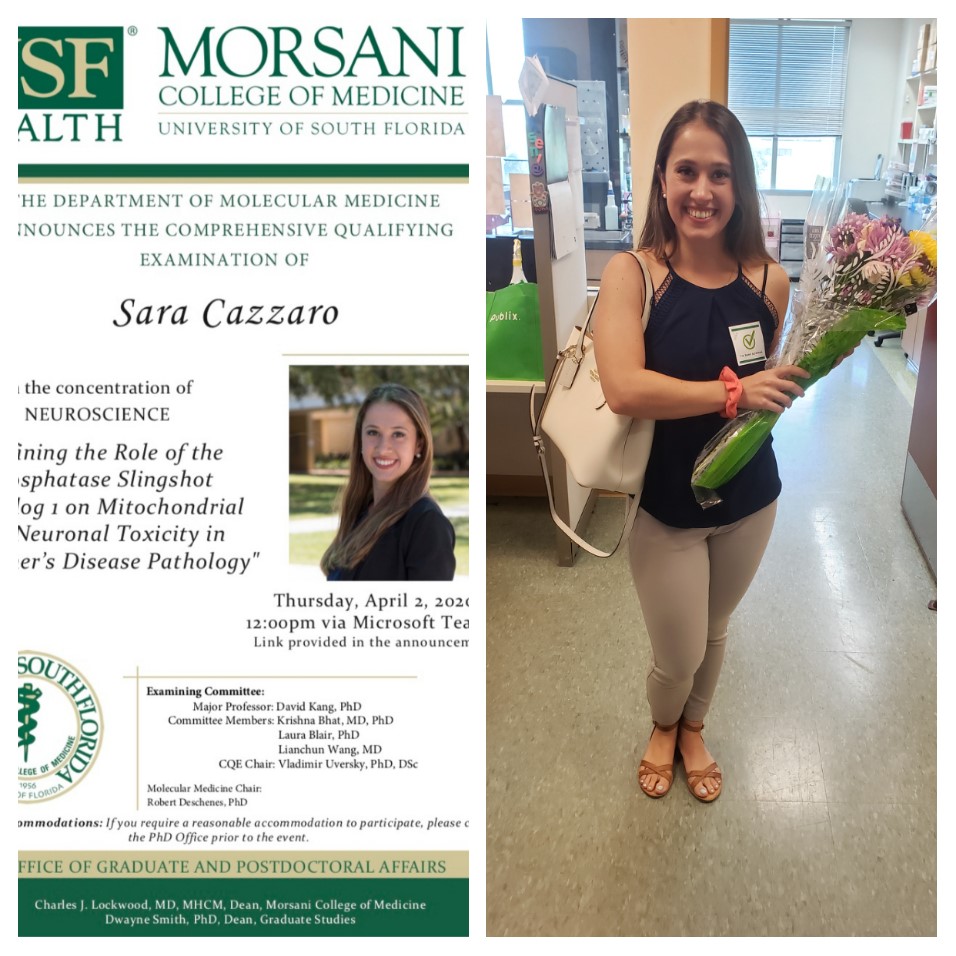
Sara Cazzaro successfully passed her comprehensive qualifying exam!
Posted 04/02/20
We are so happy for Sara passing her comprehensive qualifying exam. Congratulations to Ph.D. candidate Sara Cazzaro!
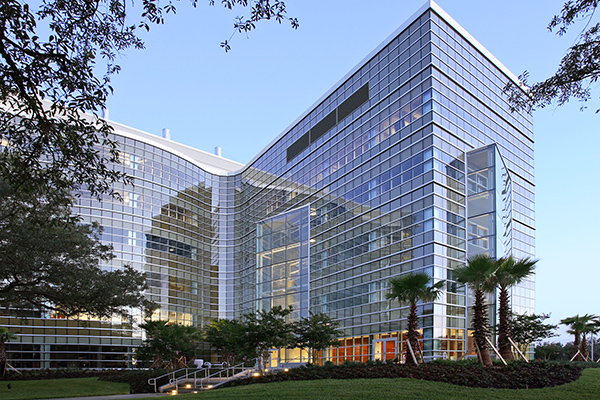
Next steps will accelerate our AD research center.
Posted 02/24/20
This article takes a look at the Byrd Alzheimer's Center main missions and how they are applied to tackle dimentia.
https://hscweb3.hsc.usf.edu/blog/2020/02/24/next-steps-needed-to-build-a-world-class-alzheimers-disease-research-center/
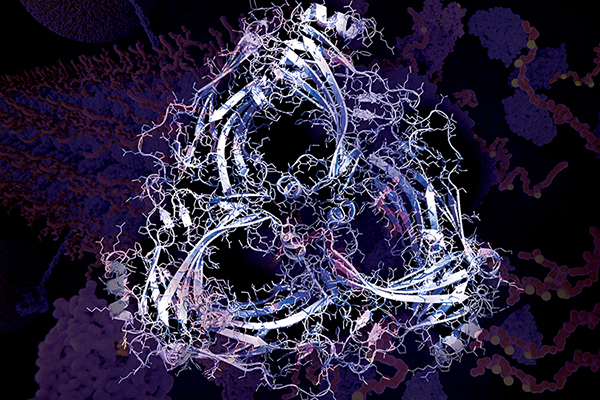
Woo and Kang Lab highlighted on USF Health website!
Posted 02/17/20
Written by Anne DeLotto Baier, this article discusses how Dr. Alexa Woo and her team explore the effects of beta-arrestin2 on the accumulation of neurotoxin tau and how it causes forms of dementia.
https://hscweb3.hsc.usf.edu/blog/2020/02/17/beta-arrestin-2-increases-neurotoxic-tau-driving-frontotemporal-dementia/
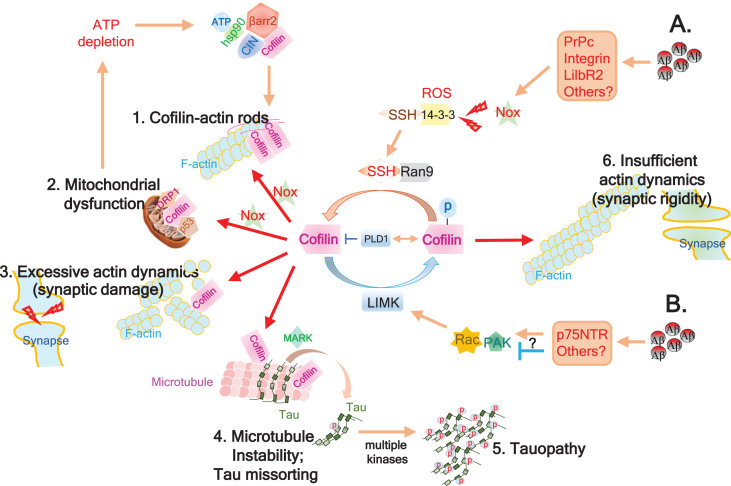
Dr. Kang and Dr. Woo Cofilin publication.
Posted 12/27/19
Dr. Kang and Dr. Woo published their paper about cofilin and how it is a master node regulating cytoskeletal pathogenesis in Alzheimer's Disease.
https://www.ncbi.nlm.nih.gov/pubmed/31594228
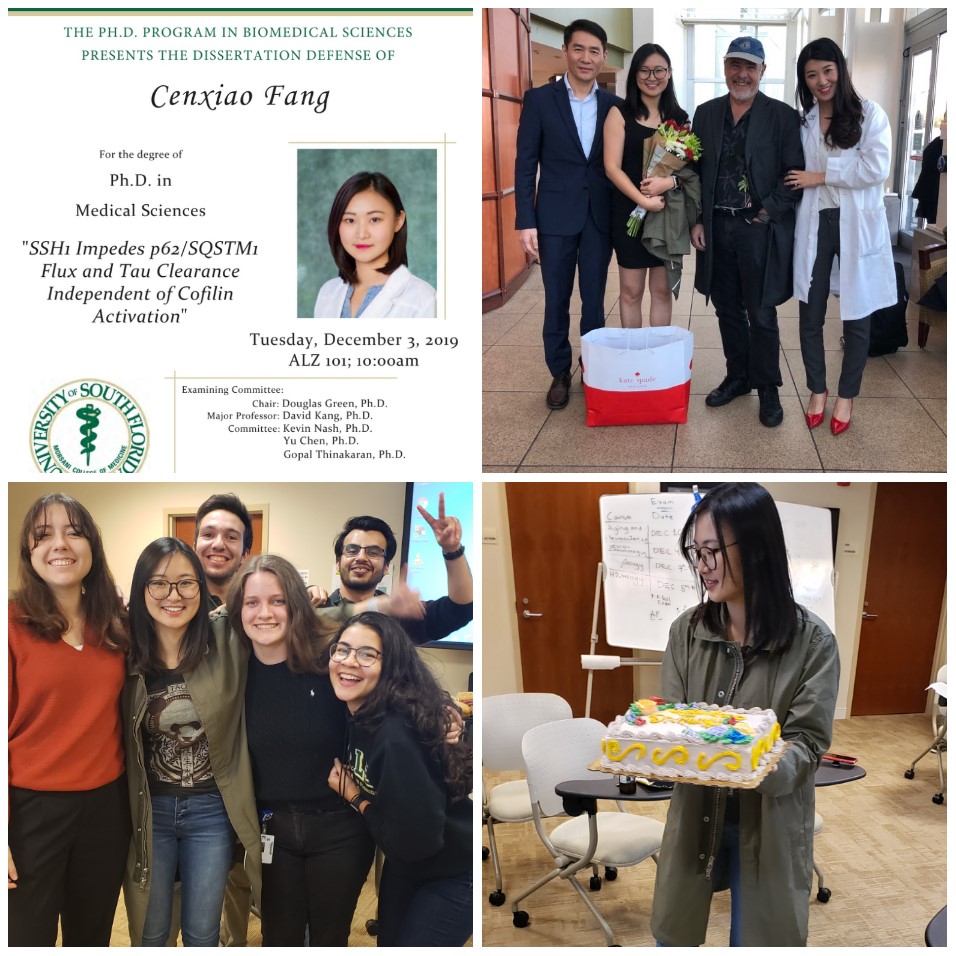
Cenxiao Fang successfully defends PhD dissertation!
Posted 12/03/19
We are honored to have Dr. Douglas R. Green as Cenxiao's outside chair, where she successfully defended her PhD dissertation. She is currently attending the University of Minnesota for her post-doctoral training in Dr. Michael Lee's Lab. Congratulations Cathrine!
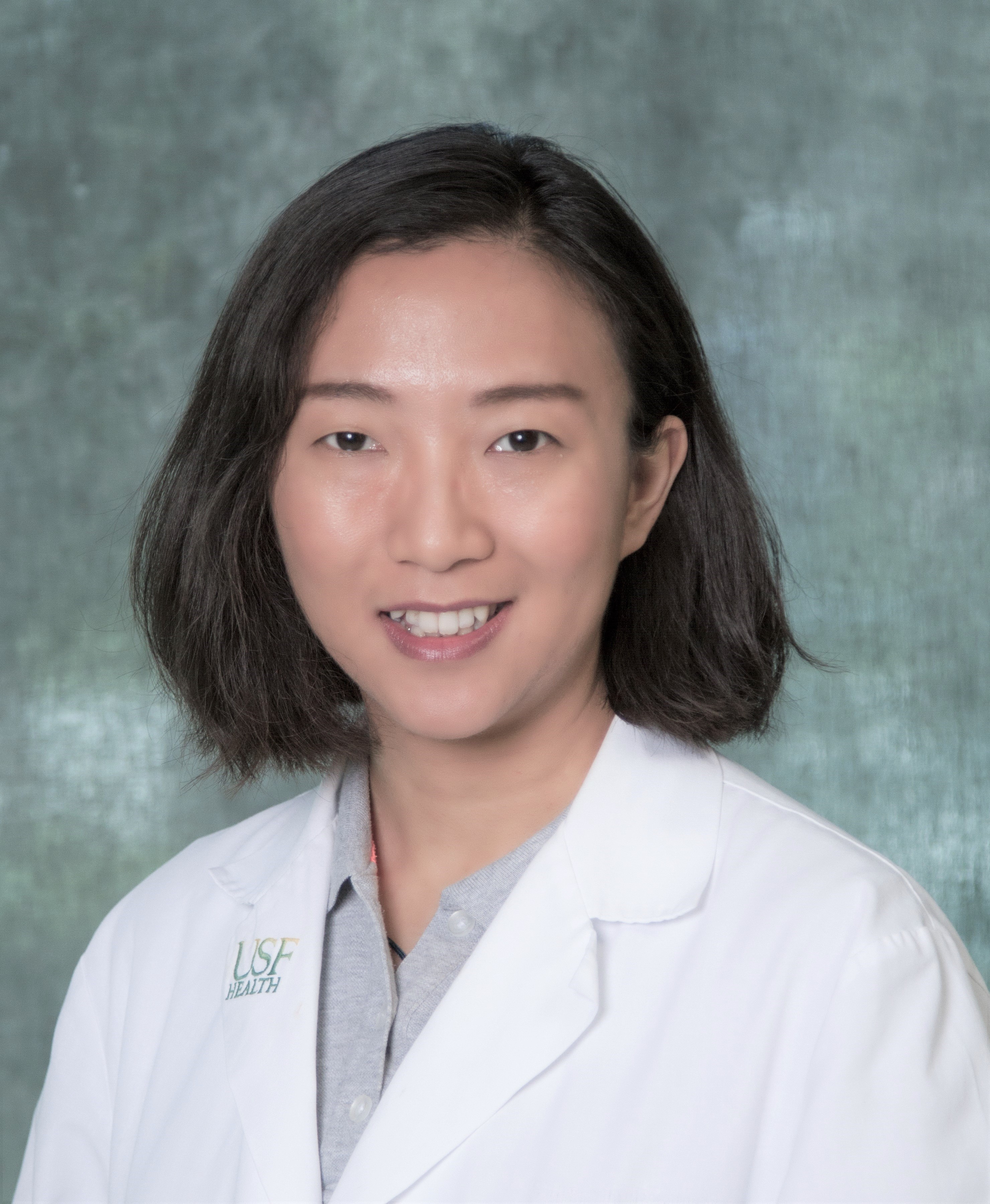
Yan Yan is one of two awarded the Dorothy Benjamin Graduate Fellowship in Alzheimer’s Disease.
Posted 11/15/19
Yan states it is her honor and privilege to receive the Dorothy Benjamin Graduate Fellowship in Alzheimer’s disease.
https://health.usf.edu/medicine/byrd
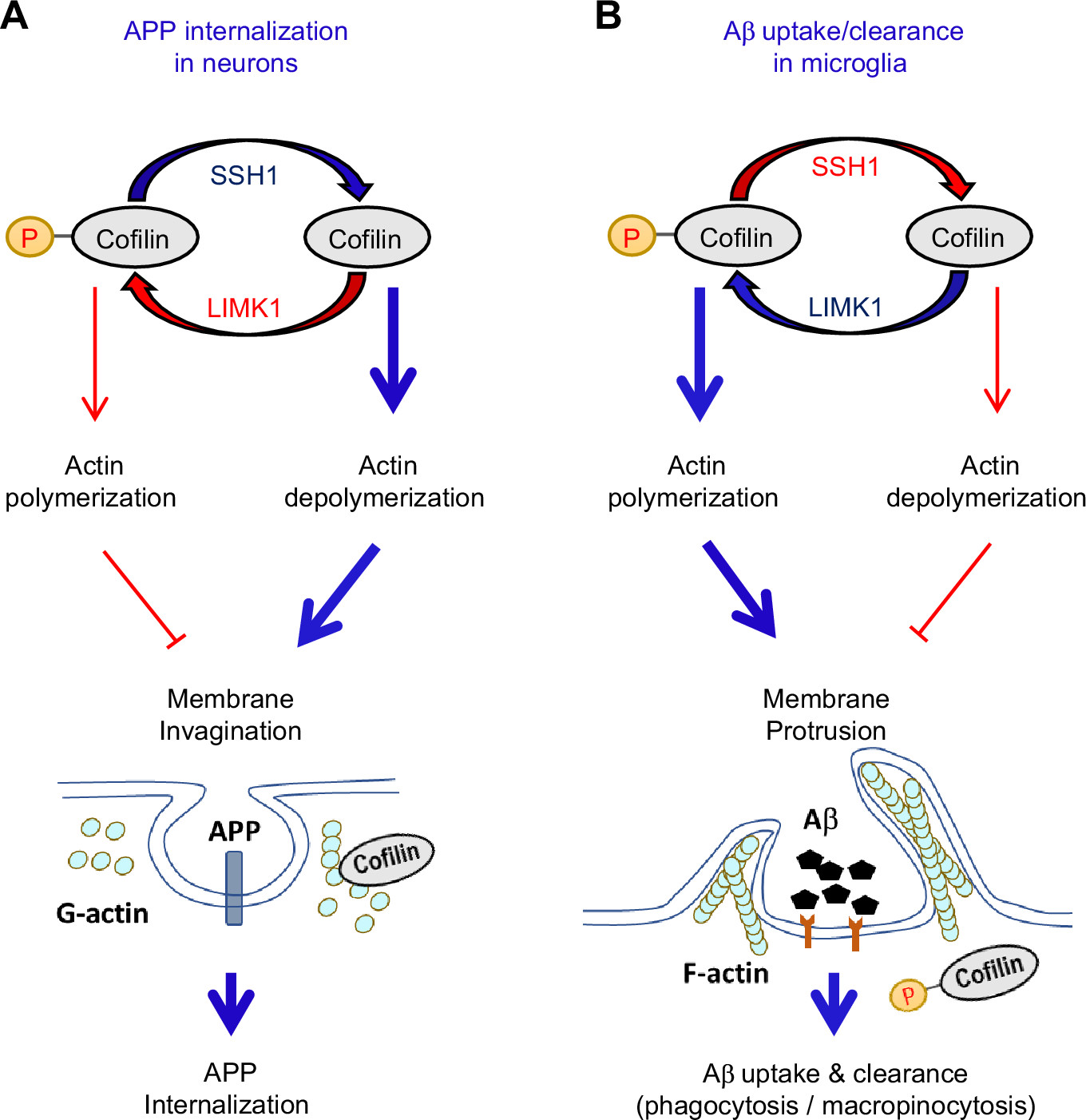
Publication of the paper about the dual role of cofilin.
Posted 10/24/19
Dr. Kang, Dr. Woo and team published a paper about the dual role of cofilin in APP trafficking and amyloid-β clearance.
https://www.ncbi.nlm.nih.gov/pubmed/31646885
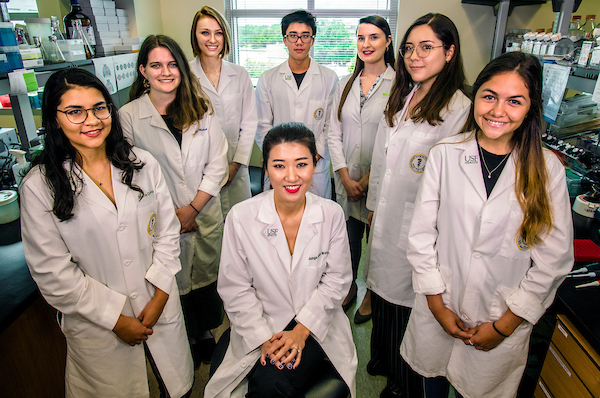
Woo lab highlighted on USF Health news!
Posted 09/20/19
This article written by Anne DeLotto Baier discusses Dr.Woo and her lab's research into B-arrestin and its effects on Alzheimer.
https://hscweb3.hsc.usf.edu/blog/2019/09/20/neuroscientist-targets-b-arrestins-with-the-aim-of-arresting-alzheimers-disease/
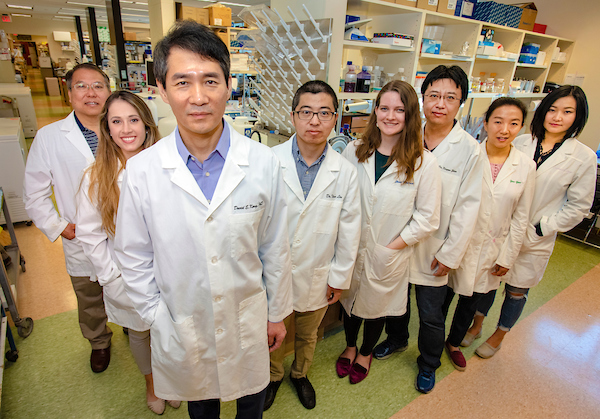
Kang Lab highlighted on USF Health Website!
Posted 06/21/19
In an article written by Anne DeLotto Baier, Dr. David Kang and his team discuss the focus of their research.
https://hscweb3.hsc.usf.edu/blog/2019/06/21/david-kang-probes-brain-changes-in-aging-that-tip-the-balance-toward-dementia/
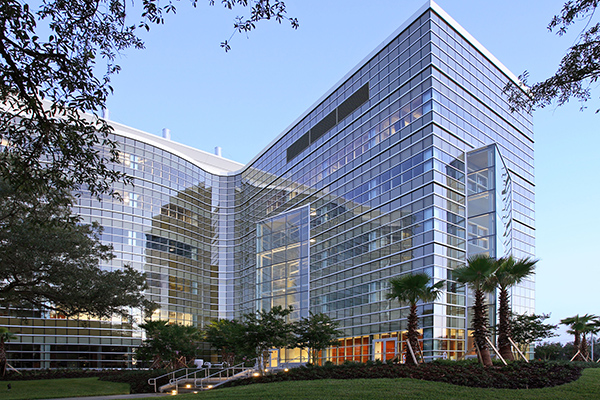
Research objectives and faculty recruitment strategies at the Byrd Alzheimer's Center have been outlined.
Posted 06/03/19
A recent article outlining the basic research objectives and recruitment strategies at the Byrd Institude has been published on the USF Health website.
https://hscweb3.hsc.usf.edu/blog/2019/06/03/byrd-alzheimers-center-basic-research-objectives-and-faculty-recruitment-strategy/
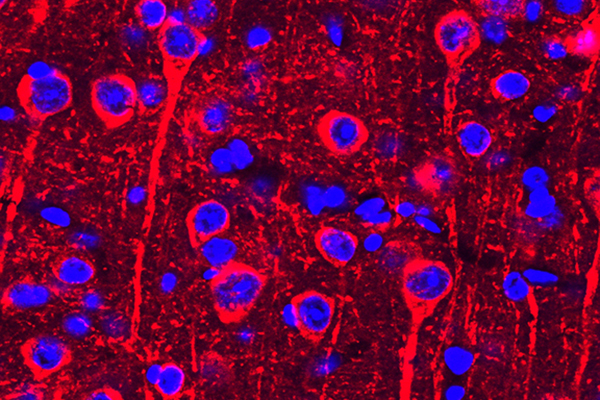
New publication featured in USF Health article!
Posted 05/13/19
The Kang lab's most recent publication, which connected cofilin and tau proteins in AD, was briefly summarized in a recent USF Health article.
https://hscweb3.hsc.usf.edu/blog/2019/05/13/cofilin-may-be-early-culprit-in-tauopathy-process-leading-to-brain-cell-death/
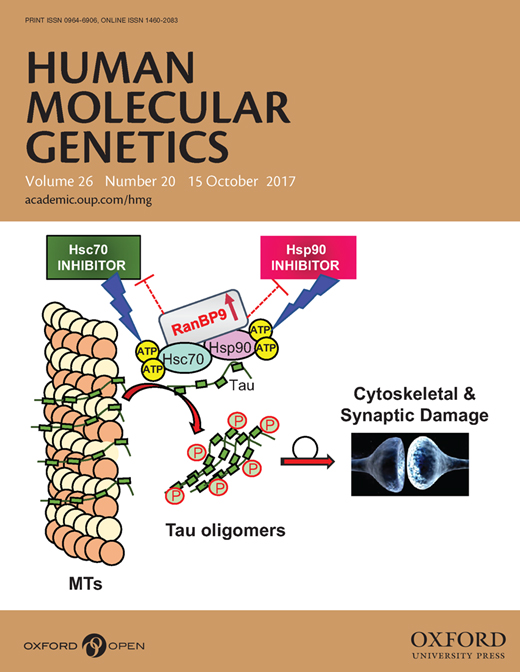
Our Summary Figure is on the Cover of HMG!
Posted 10/07/17
The summary figure for our article titled: Enhanced tau pathology via RanBP9 and Hsp90/Hsc70 chaperone complexes is featured on the cover of the current issue of Human Molecular Genetics. This figure shows how, under pathogenic conditions, elevation of RanBP9 promotes association of Tau with Hsp90/Hsc70 complexes. This promotes tau oligomerization by decreasing degradation of tau, eventually leading to synaptic damage and disease.
https://academic.oup.com/hmg/issue/26/20
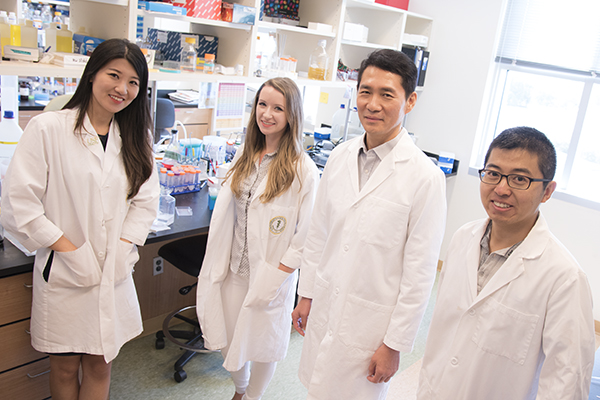
Kang Lab Featured in USF Health Article
Posted 10/04/17
Our research on the nature and function of ALS-linked CHCHD10 mutations is featured in this article written by Vjollca Hysenlika on September 29, 2017. You can read the article here:
https://hscweb3.hsc.usf.edu/blog/2017/09/29/research-usf-health-reveals-als-ftd-gene-link-pathology/
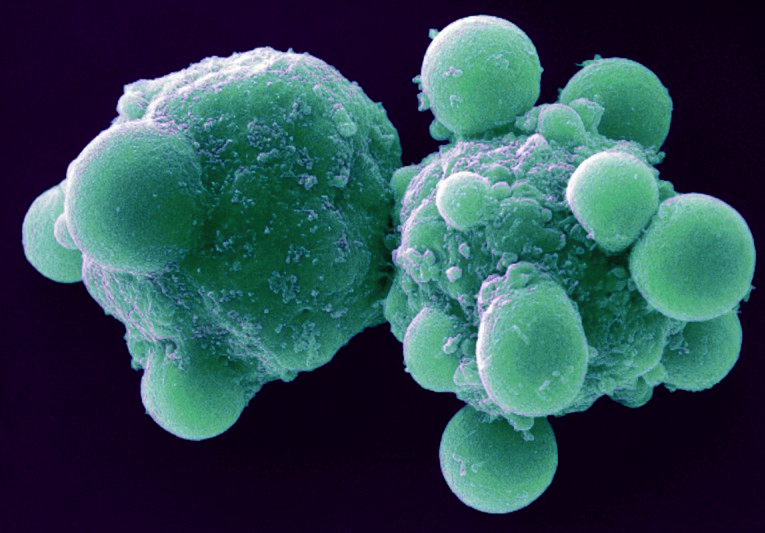
Active Cofilin Promotes Apoptosis via p53
Posted 09/14/17
In this study we describe the mechanism of cofilin-induced apoptosis through p53 translocation to the nucleus and mitochondria.
Abstract
Amyloid β (Aβ) accumulation is an early event in the pathogenesis of Alzheimer’s disease (AD), leading to mitochondrial and synaptic dysfunction, tau accumulation, and eventual neuronal death. While the p53 apoptotic pathway has clearly been associated with Aβ deposits and neuronal apoptosis, the critical upstream factors contributing to p53 activation in AD are not well understood. We have previously shown that cofilin activation plays a pivotal role in Aβ-induced mitochondrial and synaptic dysfunction. In this study, we show that activated cofilin (S3A) preferentially forms a complex with p53 and promotes its mitochondrial and nuclear localization, resulting in transcription of p53-responsive genes and promotion of apoptosis. Conversely, reduction of endogenous cofilin by knockdown or genetic deficiency inhibits mitochondrial and nuclear translocation of p53 in cultured cells and in APP/PS1 mice. This cofilin-p53 pro-apoptotic pathway is subject to negative regulation by PLD1 thorough cofilin inactivation and inhibition of cofilin/p53 complex formation. Finally, activated cofilin is unable to induce apoptosis in cells genetically lacking p53. These findings taken together indicate that cofilin coopts and requires the nuclear and mitochondrial pro-apoptotic p53 program to induce and execute apoptosis, while PLD1 functions in a regulatory multi-brake capacity in this pathway.
https://www.ncbi.nlm.nih.gov/pubmed/28912445
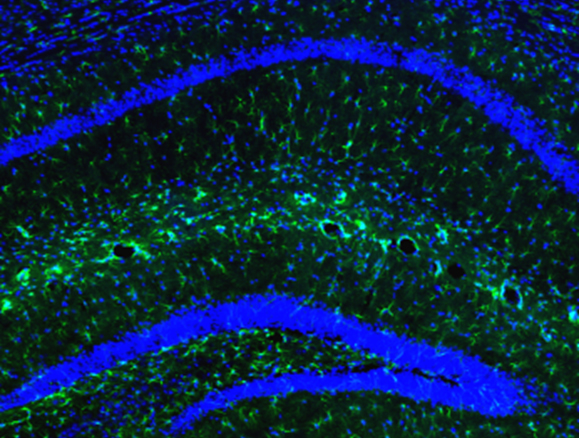
New Publication in Human Molecular Genetics
Posted 07/18/17
This new article describes how the scaffolding protein RanBP9 transmits Aβ-induced neurotoxic signals to tau.
Abstract
Accumulation of amyloid β (Aβ) and tau represent the two major pathological hallmarks of Alzheimer’s disease (AD). Despite the critical importance of Aβ accumulation as an early event in AD pathogenesis, multiple lines of evidence indicate that tau is required to mediate Aβ-induced neurotoxic signals in neurons. We have previously shown that the scaffolding protein Ran-binding protein 9 (RanBP9), which is highly elevated in brains of AD and AD mouse models, both enhances Aβ production and mediates Aβ-induced neurotoxicity. However, it is unknown whether and how RanBP9 transmits Aβ-induced neurotoxic signals to tau. Here we show for the first time that overexpression or knockdown of RanBP9 directly enhances and reduces tau levels, respectively, in vitro and in vivo. Such changes in tau levels are associated with the ability of RanBP9 to physically interact with tau and heat shock protein 90/heat shock cognate 70 (Hsp90/Hsc70) complexes. Meanwhile, both RanBP9 and tau levels are simultaneously reduced by Hsp90 or Hsc70 inhibitors, whereas overexpression or knockdown of RanBP9 significantly diminishes the anti-tau potency of Hsp90/Hsc70 inhibitors as well as Hsc70 variants (WT & E175S). Further, RanBP9 increases the capacity for Hsp90 and Hsc70 complexes to bind ATP and enhances their ATPase activities in vitro. These observations in vitro and cell lines are recapitulated in primary neurons and in vivo, as genetic reduction in RanBP9 not only ameliorates tauopathy in Tau-P301S mice but also rescues the deficits in synaptic integrity and plasticity.
https://doi.org/10.1093/hmg/ddx284
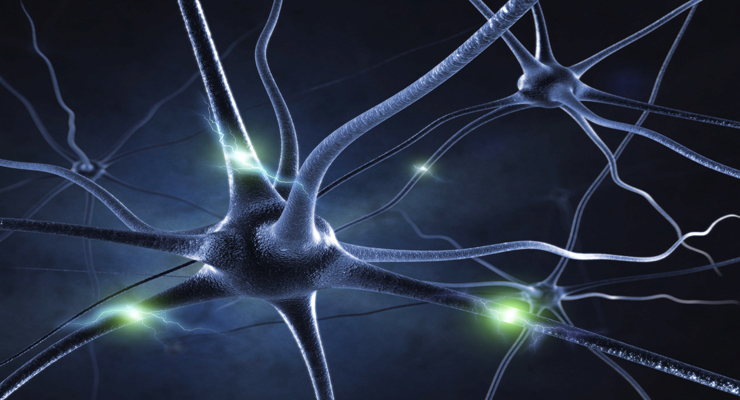
Kang Lab featured in ALZForum Article
Posted 06/26/17
Our research on the nature and function of ALS-associated CHCHD10 mutations was recently featured in an article by Pat McCaffrey for Alzforum on June 24th, 2017. You can read the article here:
http://www.alzforum.org/news/research-news/alsftd-genes-reveal-pathways-pathology
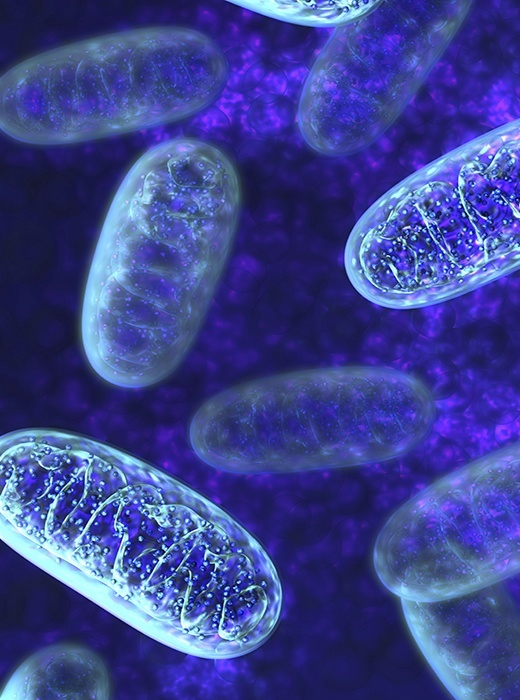
CHCHD10, TDP-43, and Synaptic Integrity
Posted 06/06/17
We are excited to announce the publication of our work on CHCHD10 in cytoplasmic TDP-43 accumulation and synaptic integrity in Nature Communications.
Abstract
Although multiple CHCHD10 mutations are associated with the spectrum of familial and sporadic frontotemporal dementia–amyotrophic lateral sclerosis (FTD–ALS) diseases, neither the normal function of endogenous CHCHD10 nor its role in the pathological milieu (that is, TDP-43 pathology) of FTD/ALS have been investigated. In this study, we made a series of observations utilizing Caenorhabditis elegans models, mammalian cell lines, primary neurons and mouse brains, demonstrating that CHCHD10 normally exerts a protective role in mitochondrial and synaptic integrity as well as in the retention of nuclear TDP-43, whereas FTD/ALS-associated mutations (R15L and S59L) exhibit loss of function phenotypes in C. elegans genetic complementation assays and dominant negative activities in mammalian systems, resulting in mitochondrial/synaptic damage and cytoplasmic TDP-43 accumulation. As such, our results provide a pathological link between CHCHD10-associated mitochondrial/synaptic dysfunction and cytoplasmic TDP-43 inclusions.
https://www.nature.com/articles/ncomms15558
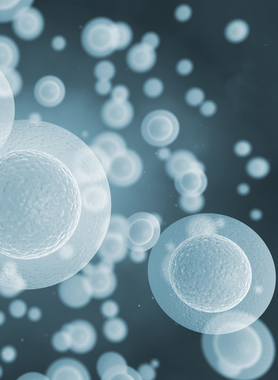
Publication of Our Exosome Isolation Method
Posted 05/17/17
We are happy to announce the publication of our protocol for isolation of exosomes and microvesicles from immortalized HT22 cells and primary cortical neurons for proteomic analysis in Methods in Molecular Biology.
Abstract
Exosomes and microvesicles are extracellular vesicles (EVs) released by most cell types. The role of EVs as a method of intercellular communication has led to these vesicles becoming a major area of interest in a variety of scientific fields including neuroscience. Emerging evidence is now demonstrating that the biomolecular composition of EVs, especially exosomes, can play a role in the progression of disease including various neurodegenerative diseases and cancer. In addition to the miRNA profiles of EVs, these vesicles also show interesting changes in protein expression profiles under different physiological and pathological conditions. Characterization of these profiles could prove valuable for both understanding disease pathogenesis and for the discovery of new biomarkers of disease. In this chapter, we describe a protocol for isolation of exosomes and microvesicles from immortalized HT22 cells and primary cortical neurons with sufficient yield and low serum contamination required for downstream analysis and label-free relative quantitation by mass spectrometry.
https://www.ncbi.nlm.nih.gov/pubmed/28508366
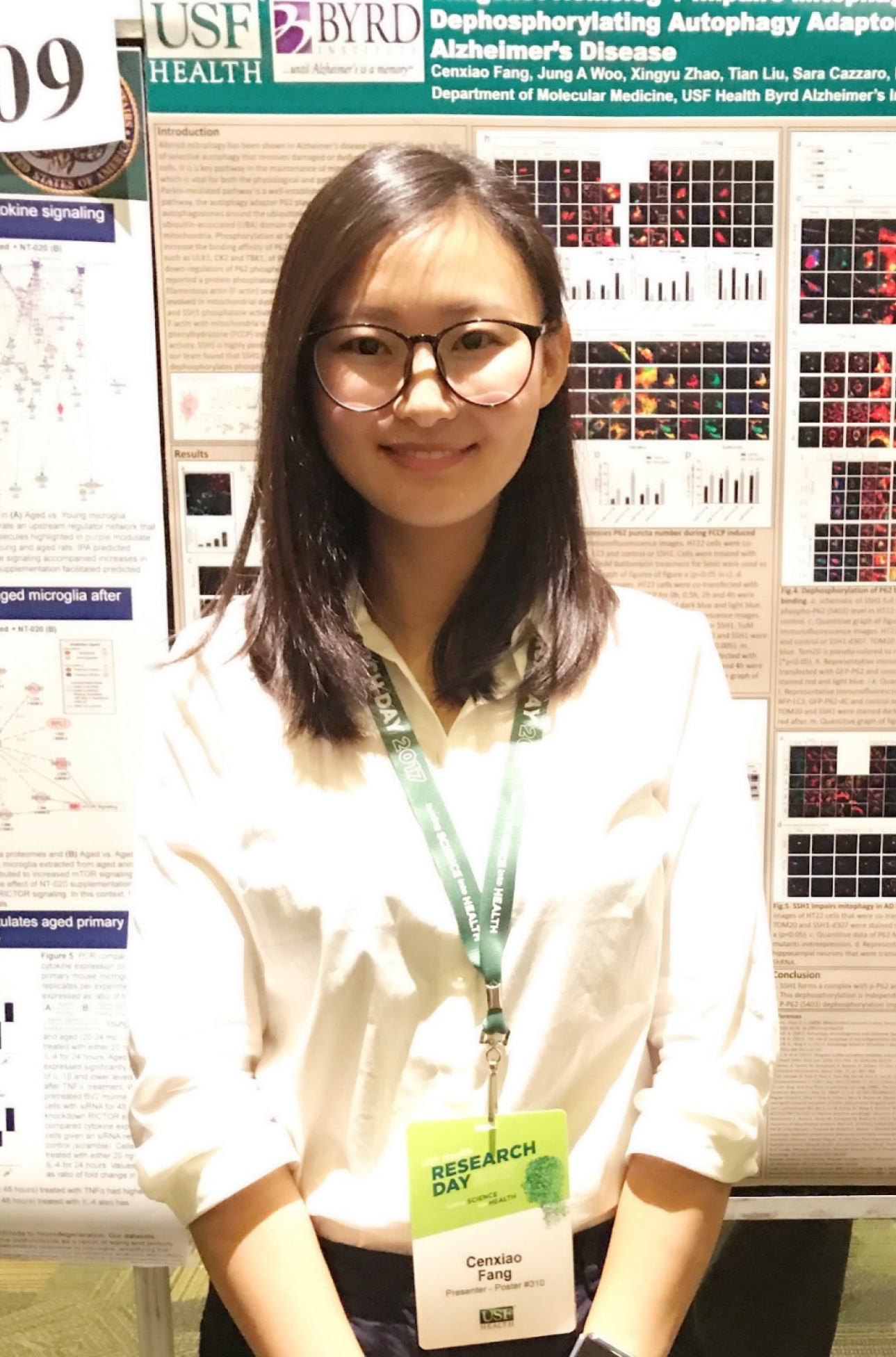
Upcoming CQE: Cenxiao Fang
Posted 04/17/17
Update 04/25/17: Congratulations to Cenxiao Fang on her PhD Candidacy!
"Slingshot Homolog 1 Impairs Mitophagy via SQSTM1/P62"
Tuesday April 25, 2017 at 12:00 P.M. in ALZ 101
Committee Members:
Kevin Nash, PhD
Yu Chen, PhD
Jun Tan, MD PhD
Chair:
Paula Bickford, PhD
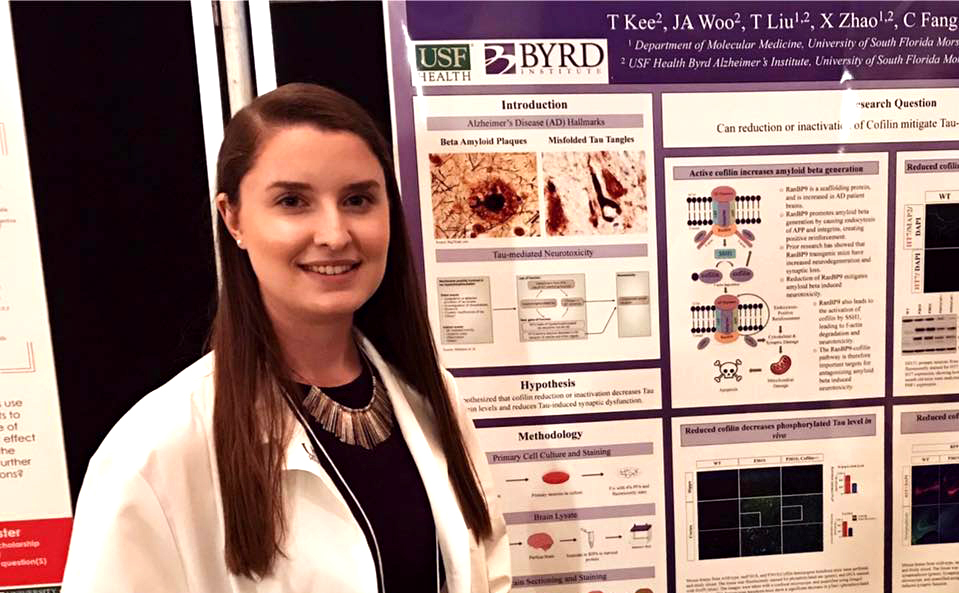
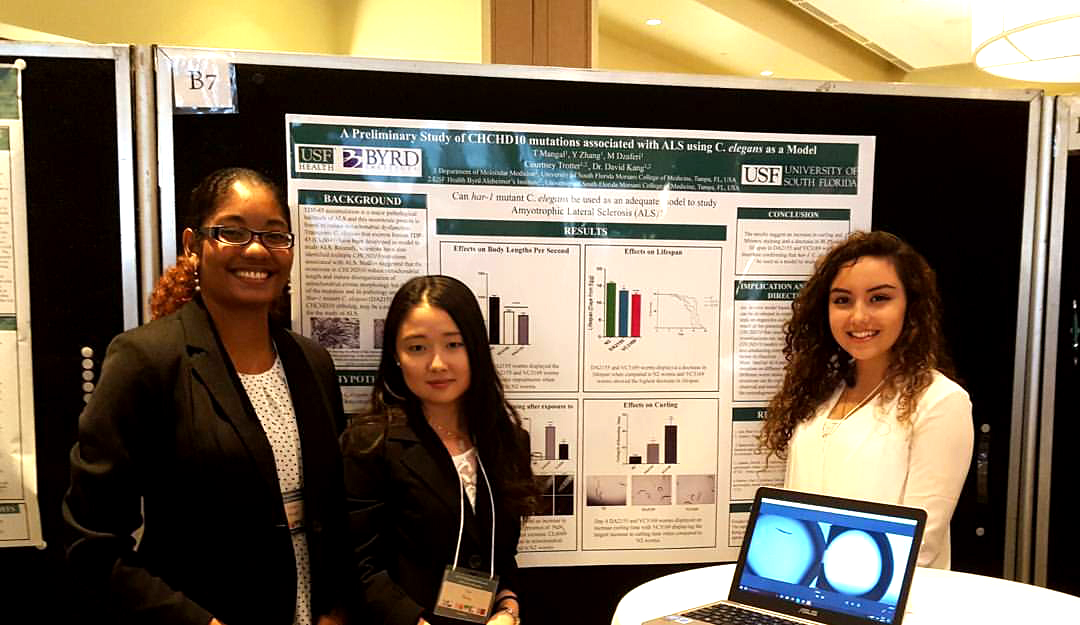
USF Undergraduate Research Colloquium
Posted 04/06/17
Congratulations to our lab members who gave poster presentations at the Undergraduate Research Colloquium this year!
"The Role of Cofilin in Tauopathies"
Teresa kee
"A Preliminary Study of CHCHD10 Mutations Associated with ALS using C. Elegans as a Model"
Tamara Mangal, Yue Zhang, and Medina Dzaferi